Remarkable and resilient Prides across Europe
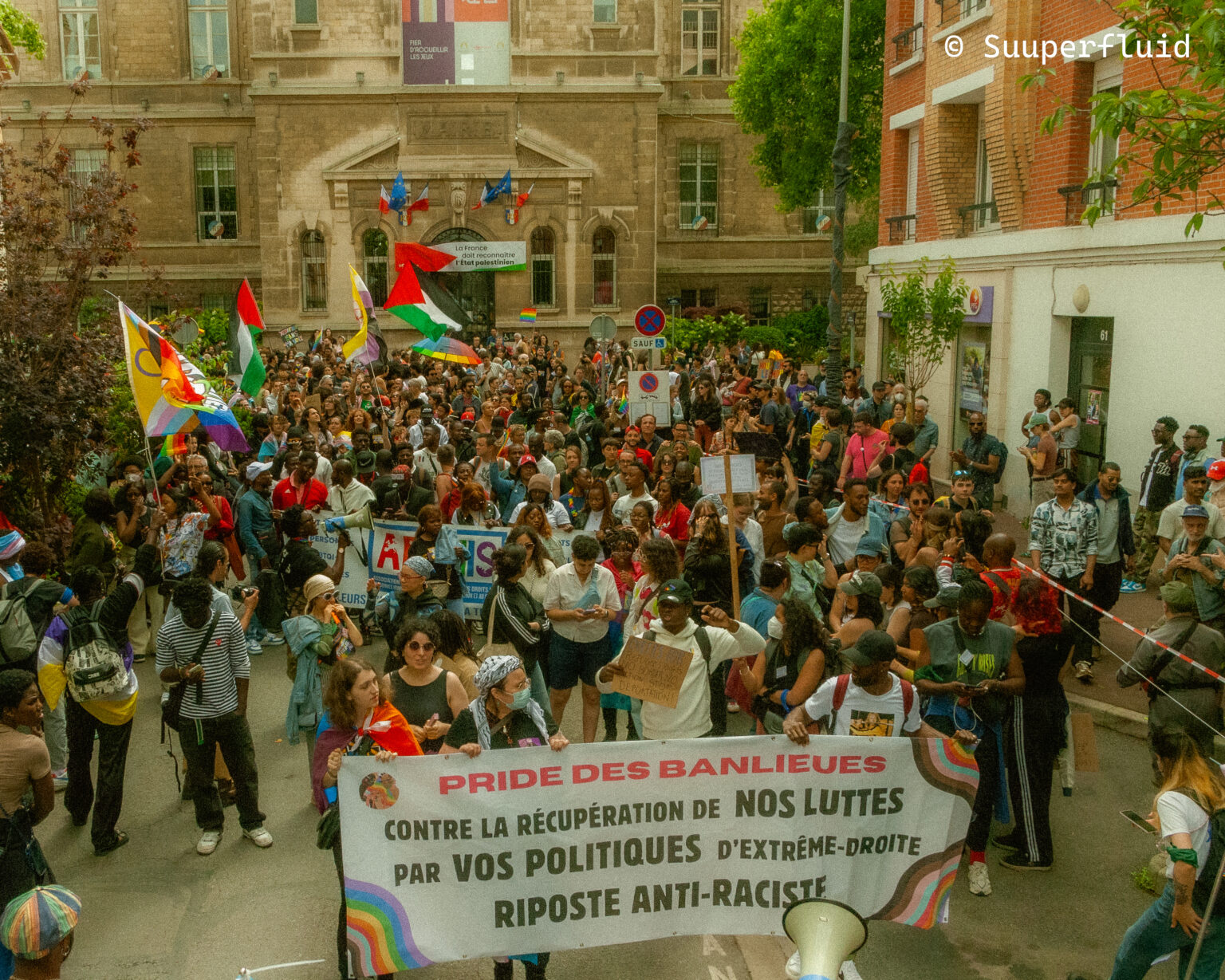
Amid political turmoil, war, social issues and cultural changes, Pride celebrations in Europe continue to demonstrate the resilience and determination of LGBTI communities
Today, on the eve of EuroPride in Thessaloniki, we are highlighting a number of significant Pride events on the continent, and one clear message shines through: LGBTI people are persisting in asserting their right to assemble and freely express themselves, thereby firmly establishing their presence in society. Pride events not only celebrate identity and diversity but also serve as critical platforms for political engagement. They amplify the voices of LGBTI people across Europe, who continue to push boundaries and demand their rightful place in society. Here are just a few of the thousands that have and will happen across Europe this year, in places where challenges are acute.
Kyiv Pride, Ukraine
Kyiv Pride 2024, on June 16, took place amidst challenging circumstances, reflecting the determination of Ukraine’s LGBTI community. Despite facing a cap on participation and heightened security measures, over 500 people marched through the streets of the capital to advocate for partnership recognition and protections against hate crimes. The event occurred against a backdrop of ongoing war, underscoring the urgent need for legislative reforms to safeguard LGBTI rights in Ukraine. Despite tensions and counter-protests, Kyiv Pride 2024 stood as a powerful assertion of the community’s right to freedom of assembly and expression.
“We took only a few steps, we made this painful compromise for the sake of safety and in order to revive the tradition and make a powerful and open Kyiv Pride March next year.” – Anna Sharygina, lead organiser of KyivPride.
La Pride des Banlieues (The Pride of the Suburbs), La Courneuve, France
La Pride des Banlieues happened in La Courneuve on June 22, representing LGBTI people from French working-class areas, many of whom are racialised. The group has been organising the Pride for several years in Saint-Denis. This year, however, the municipalities denied permission to march in Saint-Denis because of preparations for the Olympic Games in the city. Due to a last-minute relocation from its original venue and losing support from a municipality that had previously been an ally of past La Pride des Banlieues marches, the event took place in another suburb of Paris with less resources for security and less time to figure out new support infrastructure.
It was important that La Pride des Banlieues took place this year as the far-right opposition has been gaining more traction in France, getting more intense in their actions against LGBTI communities, with racialised LGBTI communities particularly facing multiple situations of discrimination and harassment. In their political message at La Pride des Banlieues, the organisers and their constituents condemned rising hate speech, discriminatory immigration policies, and institutional racism, aiming to resist far-right co-optation and mobilise solidarity against oppression of ethnic minorities and LGBTI communities in the suburbs.
“The fight against the far-right cannot be reduced to a universal fight, we must recognise the multiple and interconnected realities of oppression.” – La Pride des Banlieues organisers.
Trans Pride Istanbul, Turkey
Trans Pride Istanbul on Sunday June 23 was marked by decentralised actions across the city. Under the theme “Perpetrator State,” participants asserted trans visibility and existence, refusing to be silenced despite bans and oppression. Rather than a centralised march, activists mounted a number of smaller, unannounced activities like hanging trans flags, projecting messages across city landmarks and reading of a statement in front of Pride attendees. The event unfolded amidst stringent security measures, including metro station closures and a heavy police presence. Two people were detained and released after. This year’s Trans Pride Istanbul not only showcased solidarity and determination among Turkey’s trans community but also highlighted ongoing issues of discrimination and the fight for visibility and rights, echoing their message that the state is accountable for perpetuating violence and systemic injustices against trans people.
“We are trans people who are made the targets of violent and discriminatory policies at any chance given just because of our trans identities.” – Trans Pride Istanbul organisers
Looking Ahead
As we approach the end of June, two more significant events lie ahead this weekend.
Bucharest Pride, Romania
More than 25,000 people are expected to take to the streets of Bucharest on Saturday, June 29 to celebrate diversity and claim the rights of the LGBTI community at a crucial moment in Romania. Both presidential and general elections are approaching, and 20% of Romanian MEPs elected to the European Parliament were from the far right, with two of them using anti-LGBTI hate speech. Additionally, a new referendum regarding the definition of families is being pushed by the government opposition.
Pride in Bucharest will address the urgent need for legal recognition and protection of all same-sex families, continuing the push for the immediate implementation of the 2018 Coman case. In the case, the European Court of Justice affirmed residency rights in EU countries (that do not recognise same-sex unions) for the spouse of an EU citizen exercising their right to freedom of movement. Romania has yet to implement the verdict by granting Andrew Coman’s husband a residence permit, and a draft law has been adopted that would stop Romania from implementing it.
ILGA-Europe will be in Bucharest this coming October for their Annual Conference, working with local hosts ACCEPT and MozaiQ, recognizing this as a crucial moment for LGBTI human rights in Romania.
Istanbul Pride, Turkey
Istanbul Pride will take place on Sunday, June 30. Given the government and police response to Pride in the country over the past years, we will be closely monitoring what is happening. One thing we do know is that the LGBTI community in Istanbul and their allies will assert their human right to freedom of assembly and freedom of expression by attending Pride, with pride, resilience and courage. We will be reporting on Istanbul in this year’s instalment of our Turkey Pride monitoring blog over the coming weeks, as we learn from activists and organisers how officials are responding to Prides across the country. You can read our Turkey Pride monitoring blog from 2023 here.
EU Enlargement Review 2024
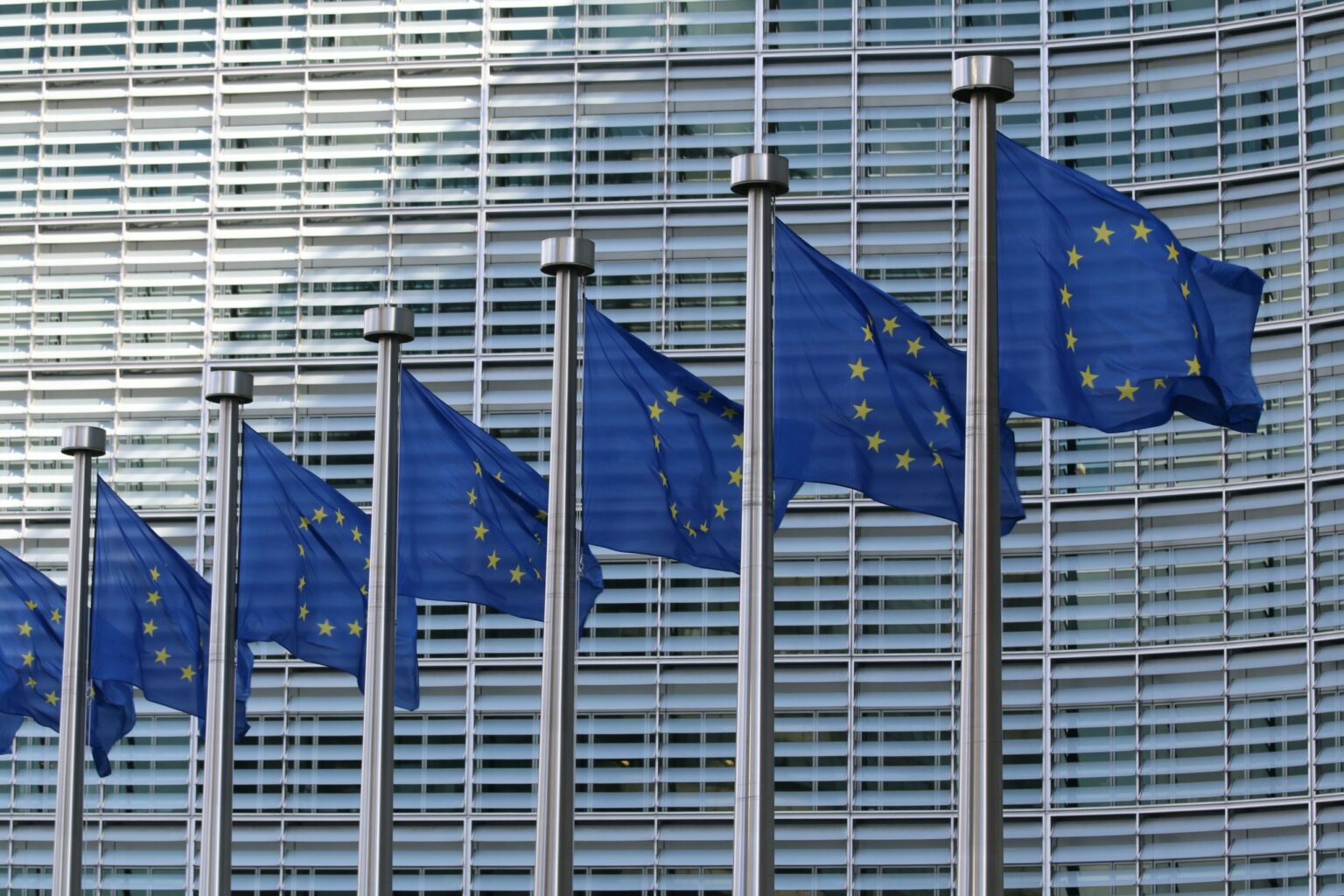
The fundamental rights of LGBTI people need to be a core part of the accession process and EU institutions need to work with the authorities in each accession country to ensure the gaps are tackled and important pieces of legislation are advanced over the next year.
The EU enlargement process has leverage and needs to be fully used to support the adoption of important legislation protecting the fundamental rights of LGBTI people, as well as call out when governments advance laws that go against EU principle of fundamental rights, democracy and rule of law.
Over the last year, not only have we seen the worrying trends of governments challenging the rule of law, an increase in LGBTI phobic hate speech by politicians and religious leader continuing and foreign influence being exerted to challenge advances on human rights continue, but in a number of candidate and accession countries, ruling parties have been pushing legislation forward that is actively limiting the human rights of vulnerable groups including LGBTI people. We have also seen governments putting forward Russian style foreign agent laws in Georgia and Republika Srpska in Bosnia- Herzegovina. LGBTI rights are being used to polarise society, often to distract from a broader undermining of democracy and the rule of law in these countries and other more important socio- economic and political issues.
The annual enlargement report process is a key moment to remind governments of the criteria that need to be met and point out where advancement on rule of law and the protection of fundamental rights are needed to advance the process. While in some countries progress has been too slow and the EU should ensure that important legislative processes are finally seen through (such as the legal gender recognition in Montenegro and partnership recognition for same-sex partners and a new hate crimes legislation in Ukraine), it is important to be very clear that the attempts to put forward laws that actively cancel EU fundamental rights cannot be tolerated and will need to lead to a reconsideration of the status granted by the EU.
It is especially important in this context that the EU insist that the protection of LGBTI people’s human rights are a core part, as they are often falling behind the requirements. The recommendations regarding the human rights of LGBTI people in the EU enlargement reports are key in holding governments accountable to the commitments made. This also means putting an emphasis on ensuring proper implementation of the laws protecting and granting access to fundamental rights. It is key that the EU makes this a priority in all the countries, also by supporting initiatives for training and education.
Through the region of all enlargement and candidate countries, we can clearly see how foreign forces are gaining influence and are challenging alliance with EU values and fundamental rights. The strength of disinformation and anti-LGBTI sentiment being spread across the Western Balkans region, particularly in Serbia, Bosnia and Herzegovina, Montenegro and North Macedonia, has intensified even more since Russia’s war in Ukraine, with LGBTI people and civil society as targets of smear campaigns, hatred and hostility, often originating from the government level, pro-Russia forces and religious leaders. We can see the anti-gender movement gaining more ground, spreading countless hostile and hateful statements and protests, disturbing public order and democratic processes. Politicians, religious leaders and newly formed organisations were among the most common perpetrators of hate speech, which translates into actual hate and violence against LGBTI people.
The anti-rights movement, which is well funded and coordinated, has taken root strongly in the Western Balkans region in the last years. In order to stand against this increasing influence of anti- gender forces and foreign governments trying to undermine the EU rule of law and democracy, strong civil society organisations are key as they continue to build social acceptance for fundamental rights, support vulnerable groups and are a corner stone of democratic societies.
The fact that LGBTI organisations in the Western Balkans have seen EU support decrease has further weakened their work and social cohesion in those countries. A number of LGBTI organisations had to close, and many at brink of closing, while they are facing organised attacks against their physical spaces, as well as against the legal framework which protects and guarantees their equal rights. The EU must be a supporting partner to these organisations, including their views meaningfully in consultations and negotiations, modelling civil dialogue as an important part of a democratic society, and continuing to support LGBTI organisations in the region through funding in the extremely fragile context.
Ukraine, LGBTI rights and joining the EU
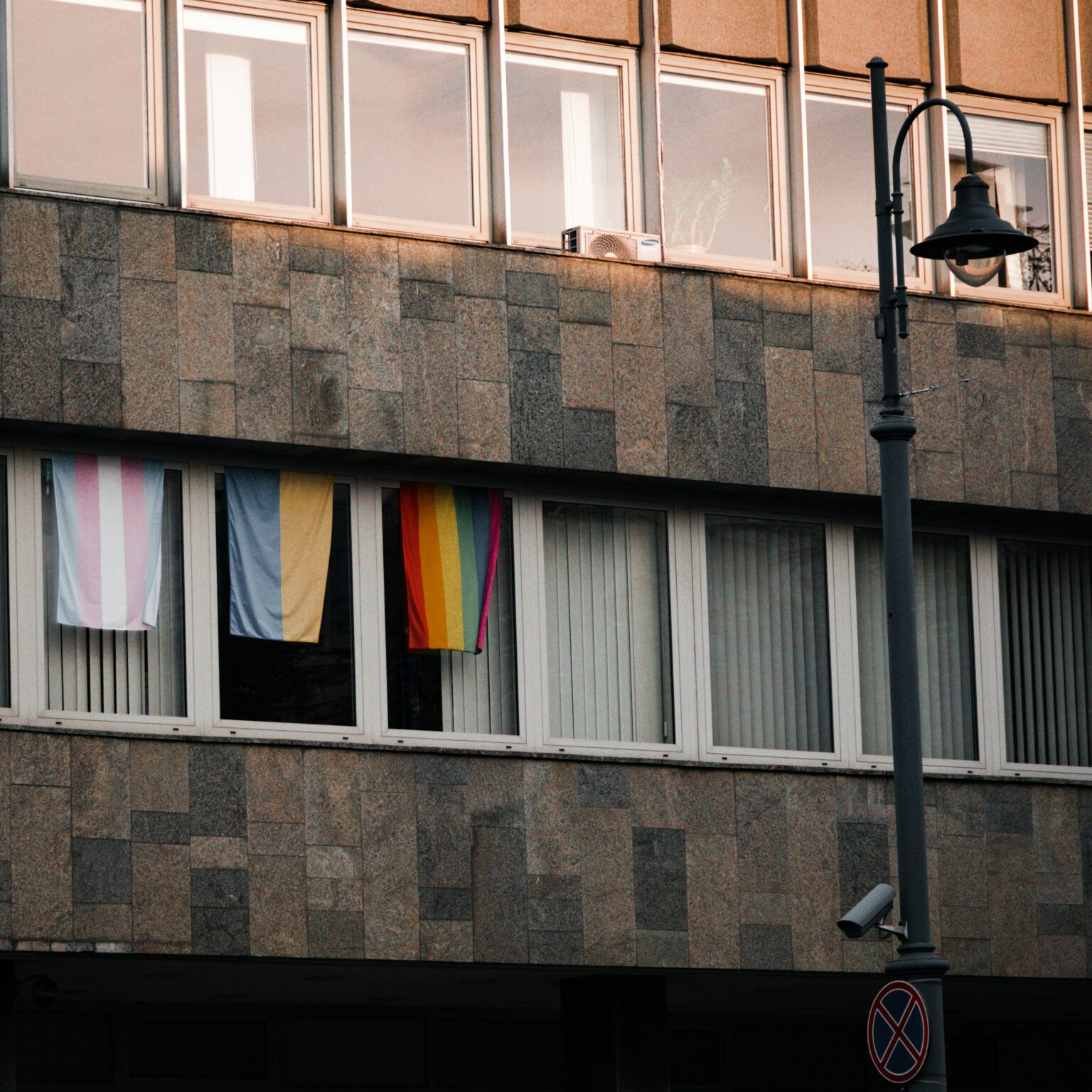
Last year, Ukraine became a candidate country to join the European Union. But the country’s lack of LGBTI rights threatens to hinder the process
As Ukraine charts its course towards European Union enlargement, it’s vital to focus on improving LGBTI rights in the country. While there’s notable support from society – with 72% of Ukrainians now supporting equal rights for LGBT people – and the international community, hurdles within the Ukrainian Parliament, the Verkhovna Rada, and the Ministry of Internal Affairs threaten to impede progress.
Despite significant strides, resistance persists within the corridors of power. This resistance not only undermines Ukraine’s commitment to EU integration but also poses a threat to the rights and freedoms of LGBTI people.
The leverage of the EU accession process cannot be overstated. The European institutions and EU member states have strength and influence to achieve change. By actively engaging with Ukrainian counterparts and lending their support to legislative initiatives aimed at safeguarding the rights of all individuals, the European Commission and Parliament, but also EU governments play a crucial role in Ukraine’s journey towards EU integration.
Recognition of same-sex partnerships
Recently, members of the European Parliament’s LGBTI Intergroup sent a letter to President Volodymyr Zelensky, showing their support for two important draft laws in Ukraine. These laws, if passed, could make a big difference for LGBTI people in Ukraine and bring the country closer to joining the EU.
One of these laws, Draft Law 9103 is the Legal Recognition of Same-Sex Partnerships. Beyond its legal implications, this would symbolise a monumental shift towards equality and non-discrimination, echoing the values espoused by the EU. If passed, it would provide legal protections and rights to same-sex couples, similar to those enjoyed by heterosexual couples, such as inheritance rights, medical decision-making authority, and financial protections – many of these rights reaching a new significance since the onset of the war in Ukraine.
Protection against hate crimes
Another crucial law mentioned in the letter and awaiting the decision of the Ukrainian Parliament, Draft Law 5488, is the Protection Against Hate Crimes – including those motivated by sexual orientation or gender identity. If enacted, it would provide legal protections to LGBTI people and other vulnerable groups who are targeted for violence or discrimination based on their identity.
In its judgment of 11 April 2024 in Karter v. Ukraine, the European Court of Human Rights ruled that Ukraine violated Article 3 (prohibition of inhuman or degrading treatment) in conjunction with Article 14 (prohibition of discrimination) in view of the ineffective investigation of two verbal and physical attacks of the applicant, a gay man, involving homophobic slurs. Further to the first attack, the authorities did not follow up on the applicants’ hate crime allegations and initially classified it as a robbery. The Court noted that the criminal-law classification the national authorities had chosen for the second attack as falling under the ordinary provisions of criminal law undermined their ability to uncover the alleged homophobic motive behind the attack.
The Court specifically considered the lack of explicit recognition of attacks motivated by sexual orientation as an aggravating circumstance in domestic criminal law in general and under Article 161 of the Criminal Code in particular and the difficulty that the absence of such recognition in domestic criminal law causes in the effective investigation of homophobia-motivated attacks. It considers that domestic authorities should “conduct the investigation taking all reasonable steps with the aim of unmasking the role of possible homophobic motives for the attack” as, otherwise, “prejudice‑motivated crimes would unavoidably be treated on an equal footing with ordinary cases without such overtones, and the resultant indifference would be tantamount to official acquiescence to or even connivance with hate crimes.”
This court ruling serves as another reason for Ukraine to prioritize and enact legislation aimed at addressing the issues highlighted, further emphasizing the urgency of legal reform in safeguarding the rights of LGBTI individuals. As Ukraine moves forward on its path towards European Union enlargement, the support of EU institutions and politicians is crucial in achieving meaningful change and upholding the principles of equality and non-discrimination. By enacting these laws, Ukraine not only strengthens its position on the path towards EU integration but also reinforces its commitment to human rights.
Giving hope comes with responsibility to us, say activists from new EU enlargement countries
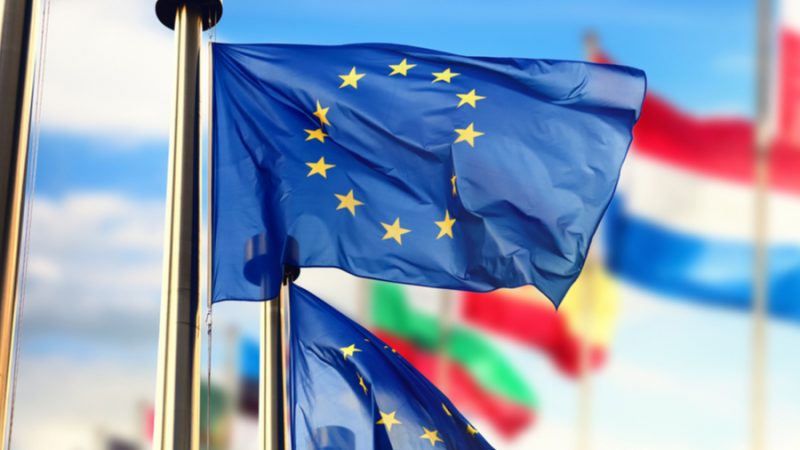
LGBTI activists from new EU enlargement countries, Ukraine, Moldova and Georgia have gathered in Brussels to call on EU representatives to live up to the promise that comes with the accession process
Today, LGBTI activists from Ukraine, Moldova and Georgia met with EU representatives in Brussels to explain serious challenges facing lesbian, gay, bisexual, transgender and intersex (LGBTI) people in their countries, and urge European institutions and Member States to live up to the hope they have given in granting all three countries prospects of becoming members of the EU.
In the wake of Russia’s invasion of Ukraine, the EU has made enlargement a priority in the eastern neighbourhood region, recently opening the path for Ukraine, Moldova and Georgia to join the EU. Ukraine and Moldova were granted candidate status by the EU Council in June 2022, and just last month the European Commission advised that Georgia should also receive candidate status at the upcoming December Council.
The prospect of joining the EU is an important motivation for governments to make reforms on advancement of rule of law and protection of fundamental rights. It is especially important in this context that the EU insists that the protection of LGBTI people’s human rights are a core part of those requirements, as governments are often falling behind the requirements. Recommendations from the EU regarding the human rights of LGBTI people are key tools supporting LGBTI organisations to engage with their governments and hold them accountable to the commitments made.
In all three countries hate crime and hate speech against LGBTI people remains a serious issue. While both Moldova and Georgia have legislation protecting against hate crime on the grounds of sexual orientation and gender identity, hate crimes are consistently not registered and prosecuted. Ukraine still needs to adopt such legislation, which is currently being debated in parliament. Despite the international obligations of these countries to provide a legal framework for the recognition of same-sex couples, none of them have adopted such legislation. The inequality this creates is particularly highlighted in Ukraine at this time, where the lack of rights of same-sex partners of soldiers wounded or killed are laid bare. International standards as regards legal gender recognition are that the procedure should be quick, transparent and accessible without abusive requirements. Currently all three countries fail to live up to this for different reasons.
Says Rina Rybalko from Gender Stream, Ukraine: “We believe that Ukraine being an EU candidate country shows bilateral willingness to cooperate and integrate, especially in terms of common values, human rights standards and opportunities. This is an important step towards strengthening democratic values and supporting civil society in Ukraine, where freedom, diversity and human rights are a priority.”
Leo Zbancă from GENDERDOC-M in Moldova says: ”The LGBTI community in Moldova faces risks due to growing anti-LGBTI narratives promoted by pro-Russian forces. We see Moldova’s move to join the EU as vital for protecting LGBTI rights and ensuring the dignity and safety of the community.”
According to Mariam Kvaratskhelia from Tbilisi Pride: “Georgia should be granted candidate status and should move further on the EU integration path without sacrificing LGBTI rights and equality, which is unfortunately what the government is currently doing.”
The accession process comes with hope in candidate countries that the prospect of EU membership will help secure a better life for LGBTI people through the implementation of EU law and standards. However, the road to EU accession can be long, and hope and ambition can turn into disillusionment and disengagement if reforms are not seen through and the efforts of people and governments are not supported and awarded by the EU.
According to Executive Co-director at ERA, Danijel Kalezić from Montenegro, which became a candidate country in 2010: “In the last 15 years in the Western Balkans, we saw how the EU enlargement process can highly contribute to the legal protection and advancement of human rights for LGBTI communities. Unfortunately, we have also seen how a lack of direct and visible political support from the EU to grassroots movements in crucial moments can result in providing a space for anti-democratic movements to stop progress achieved and push the backsliding that is currently ongoing in our region.”
The meetings between activists and EU representatives in Brussels this week were facilitated by ILGA-Europe, the largest umbrella organisation for the LGBTI movement in Europe. According to ILGA-Europe’s Advocacy Director, Katrin Hugendubel, “These meetings are essential because we need to ensure that all EU institutions engaged in the enlargement process understand what is at stake – the huge potential to work for better respect of LGBTI people’s human rights through the process, but also the big risk of backlash in case the EU is not following through the accession promises.
“We see in the Western Balkans after years of active engagement on advancing human rights and fulfilling accession conditions, people are now disillusioned and the influence and leverage of the EU is quickly diminishing. Tensions in the region are high and the influence of other global forces is very real and worrying. In Georgia, Moldova and Ukraine, people want to move towards the EU and democratic reforms are undertaken to do so. The EU needs to support these efforts and stand clear on its promise of accession.”
EU Enlargement Review 2023
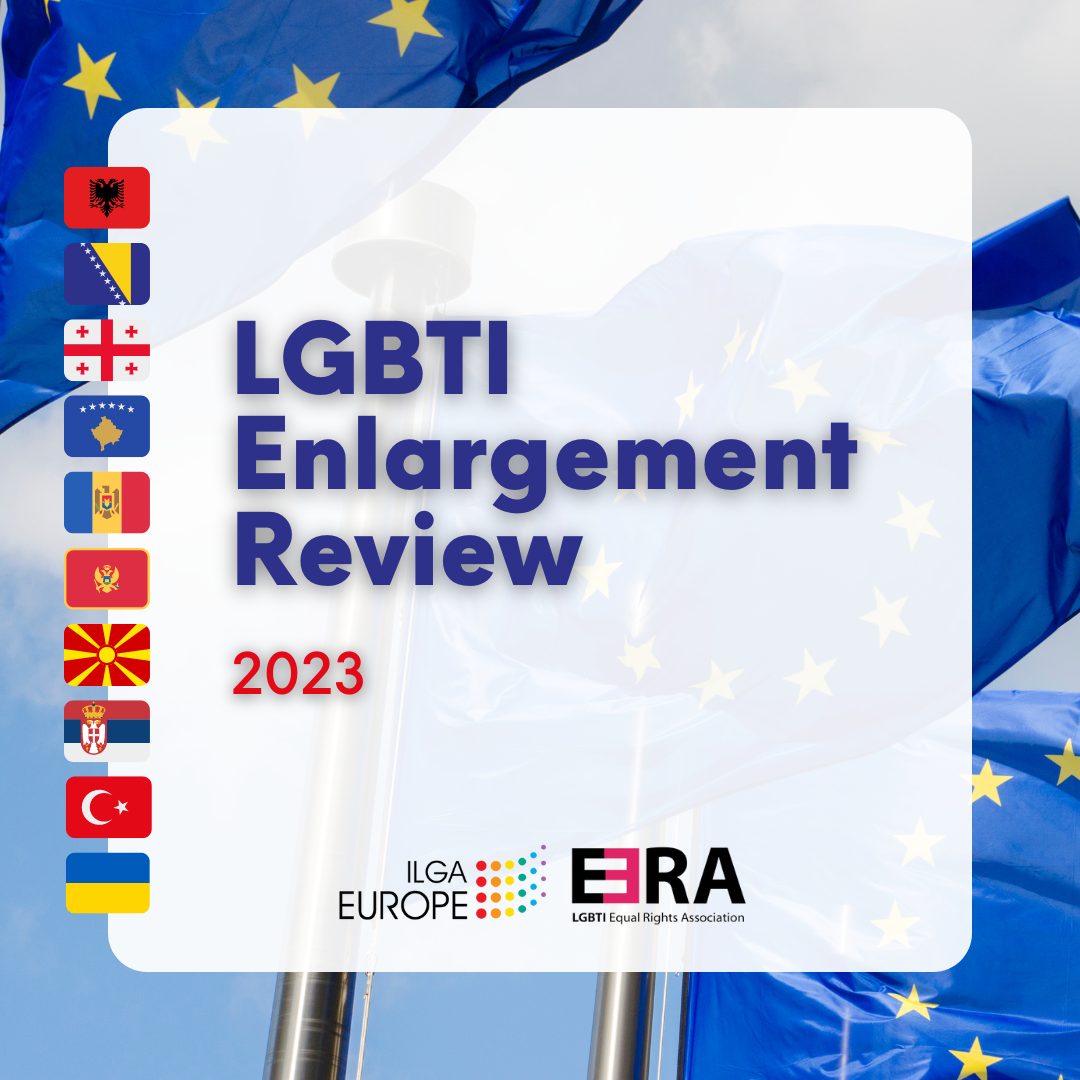
ILGA-Europe has worked with ERA – LGBTI Rights Association for the Western Balkans and Turkey, to produce our annual LGBTI Enlargement Review, assessing gaps in legislation and policy for the protection and advancement of the human rights of LGBTI people in the enlargement countries, and identifying priorities the EU should insist authorities in each country need to tackle in the coming year, as identified by LGBTI activists in the respective countries.
2022 was an historic year for the enlargement process, as the EU expanded its promise of a perspective for EU accession to include Ukraine, Moldova and Georgia, following the beginning of Russia’s war in Ukraine on 24 February 2022. All three countries are now included in the EU’s annual enlargement reporting process. As ILGA-Europe has member organisations in all of the newly added countries, this year’s LGBTI Enlargement Review covers the perspectives of LGBTI civil society from all ten countries: Albania, Bosnia & Herzegovina, Georgia, Kosovo, Moldova, Montenegro, North Macedonia, Serbia, Turkey and Ukraine.
This year’s LGBTI Enlargement Review also follows a new format. We wanted to particularly highlight the importance of implementation of already existing policy and legislation, as it has become commonplace for Enlargement countries to adopt a legal framework aligning with EU standards, but not actually implementing it. As a result, each country chapter is divided into the below headings:
- Main legislation/policy to be drafted/adopted to ensure non-discrimination and access to justice for LGBTI people (priorities for the coming year)
- Implementation of already-existing legislation/policy
- Legislation/policy in process
- Feedback on the European Commission’s 2022 Enlargement Report (where applicable)
- Recommendations to the EU
These headings are then complemented by a section linking readers to the respective country chapter of ILGA-Europe’s Annual Review 2023, in order to understand the reality on the ground and more nuanced context, which often varies significantly from legislative frameworks. The chapter on Turkey is structured in a different way, in order to present the current state of play prior to the elections in May, and will be updated to reflect the priorities that emerge after the elections.
In all of the enlargement countries, we can unfortunately identify a clear trend of rule of law being challenged, foreign influence being exerted to challenge advances on human rights, including the rights of LGBTI people, and an increase of hate speech translating into violence on the ground, as well as ongoing challenges to freedom of assembly and association.
In this context, LGBTI topics are being used to polarise society, often to distract from a broader undermining of democracy and the rule of law in these countries and other more important socio-economic and political issues.
It is thus important that the EU renews a clear prospect for EU enlargement, not only for Ukraine, Moldova and Georgia, but most importantly in the Western Balkans. The commencement of accession talks with Albania and North Macedonia is an encouraging step in this regard. It is important that the EU places LGBTI rights firmly into all its considerations, and that demands on advancing the protection of the human rights of LGBTI people are put on the same footing as important processes on fighting corruption and advancing the rule of law.
Four questions to ask yourself before launching a crisis fundraising campaign
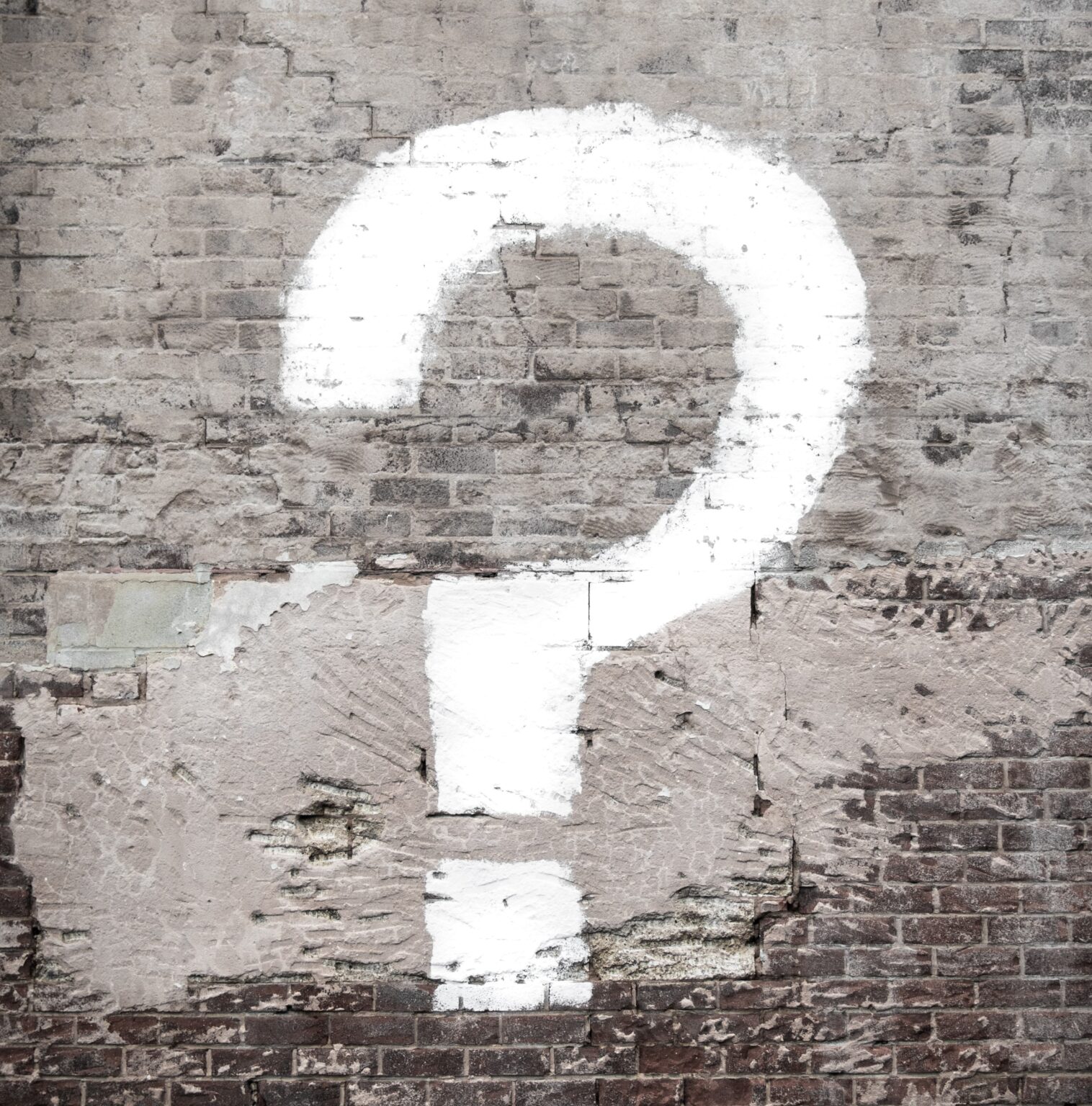
When humanitarian crisis hits, it’s not surprising that people want to help the best way they can. LGBTI activists’ organisations are often at the forefront, often with fundraising campaigns, but sometimes this response can cause more harm than good. Here’s why.
Sadly, the past few years in our world have been marked by major crises, be it the COVID pandemic, war, conflict, natural disasters or violent crackdowns. LGBTI communities are often impacted by crises in specific ways, as we’ve seen in our Annual Review, for example through exclusion and lack of safety in shelters, difficulty in accessing hormones and medications via mainstream humanitarian responses, and being specifically targeted and scapegoated.
During times of emergency, we often see people responding with generosity. Donating is a simple, easy and constructive way of showing solidarity in response to crisis or hostile developments. We saw a wave of generosity in 2017, for example, in response to purge of LGBTI people in Chechnya, or over the past year in support of LGBTI people caught up in the war in Ukraine.
As people ask themselves, ‘How can I help?’, it’s understandable that LGBTI organisations see opportunities to set up fundraising campaigns, whether for their own needs or in support of others. But to raise money responsibly and without causing harm, there are some questions we should ask ourselves beforehand.
Humanitarian organisations with long experience of providing aid can jump into action immediately in the face of any crisis, but for organisations focused primarily on advancing LGBTI people’s rights it’s helpful to pause and think through a few key questions.
Should you be fundraising publicly?
Fundraising can be a constructive response and meet real needs, but it’s not necessarily always the right response. Before going ahead with launching a fundraising campaign on social media and other public platforms, or sharing an appeal of others, ask yourself what your role in this situation should be and whether you have enough information about what kind of support is most helpful in this situation at this moment. Though always well intended, sometimes a fundraising campaign might not be the best response if the attention could potentially put LGBTI communities at risk, or if LGBTI activists in the affected region don’t have the capacity to provide humanitarian support to their communities.
Do you know what the needs are?
If you’re fundraising for your own community, it will of course be easier to assess needs and risks and how you can best use donations. But if you’re fundraising in solidarity with communities in another country, or sharing a fundraiser started by others, it’s especially important to assess LGBTI people specific needs. Is a fundraising ask coming from the local LGBTI movement, and from recognised and trusted groups? Do you know who to speak with to learn about needs?
You’ll need to decide whether you’ll collect funds and disburse them yourself, share a fundraising appeal by other group(s), or invite donations directly to local groups on the ground. Whichever the route, it’s important to consider who is the ultimate recipient of the funds, whether they’re happy for you to fundraise on their behalf, and whether they’re able to handle the funds.
Here, it’s also important to be able to communicate to donors as accurately and clearly as possible, for transparency and trust. Of course, specific needs will not always be clear immediately, but you should be able to give donors a sense of where their money is going, and what happens if needs change or end.
A positive example of communicating about needs is Lambda Warsawa, who set up a successful fundraiser to support LGBTI refugees arriving from Ukraine, conveying both a sense of urgency and outlining concretely how money is spent on activities such as renting a shelter, setting up a support group and preparing sandwiches to hand out to new arrivals at the central railway station.
In Slovenia, eight LGBTI organisations came together to raise funds to support trans people in shelters in Western Ukraine, while COC Netherlands launched a fundraiser in support of LGBTI communities in Ukraine, raising money for local organisations on the ground and providing regular updates about amounts raised and where the money has been sent.
What are the risks?
An LGBTI specific fundraising ask may be perceived as jumping on the bandwagon. At worst it can be seen as profiteering from crisis, leading to backlash. If the decision is to fundraise publicly, how you communicate about needs (as described above) is important in avoiding these risks. If you are raising money in solidarity with others, it’s paramount to consider whether there are risks related to LGBTI groups receiving money and whether publicity could lead to them being targeted.
What’s your message and how will it be perceived?
To avoid risks and to foster trust, how you frame your fundraising message is vital.
While it’s real stories that compel people to give, it’s important not to victimise the beneficiaries you are fundraising for, or sensationalise their circumstances. Instead, give affected community members an active voice, as did LGBT Asylum in Denmark, who asked a former beneficiary of their services to talk about how the organisation had helped him as they prepared to welcome LGBTI refugees from Ukraine. Or the Albert Kennedy Trust in the UK who highlighted stories of young people their services have helped as part of their Winter Pathways emergency fundraising appeal to raise money in response to the cost of living crisis.
Be mindful of how your potential donors will be feeling, and avoid triggering further anxiety or distress, or pressure into giving. For example, in 2020, when Polish organisation Fundusz dla Odmiany set up a successful fundraising campaign in response to violent crackdown on peaceful protests in Warsaw, they took the decision to avoid using images of the consequences of the most severe police violence.
Do you want to know more? Here is some further reading
Fundraising during an Emergency, by Daniel Fluskey, Director of Policy at the UK Chartered Institute of Fundraising
The Fundraising section of ILGA-Europe’s free resource centre, The Hub
It Shows that People Care – LGBTI organisations fundraising from individuals in Europe and Central Asia
SOFII – Crisis Fundraising
Statement of Solidarity with the LGBTQI Community in Ukraine on the one-year anniversary of Russia’s invasion
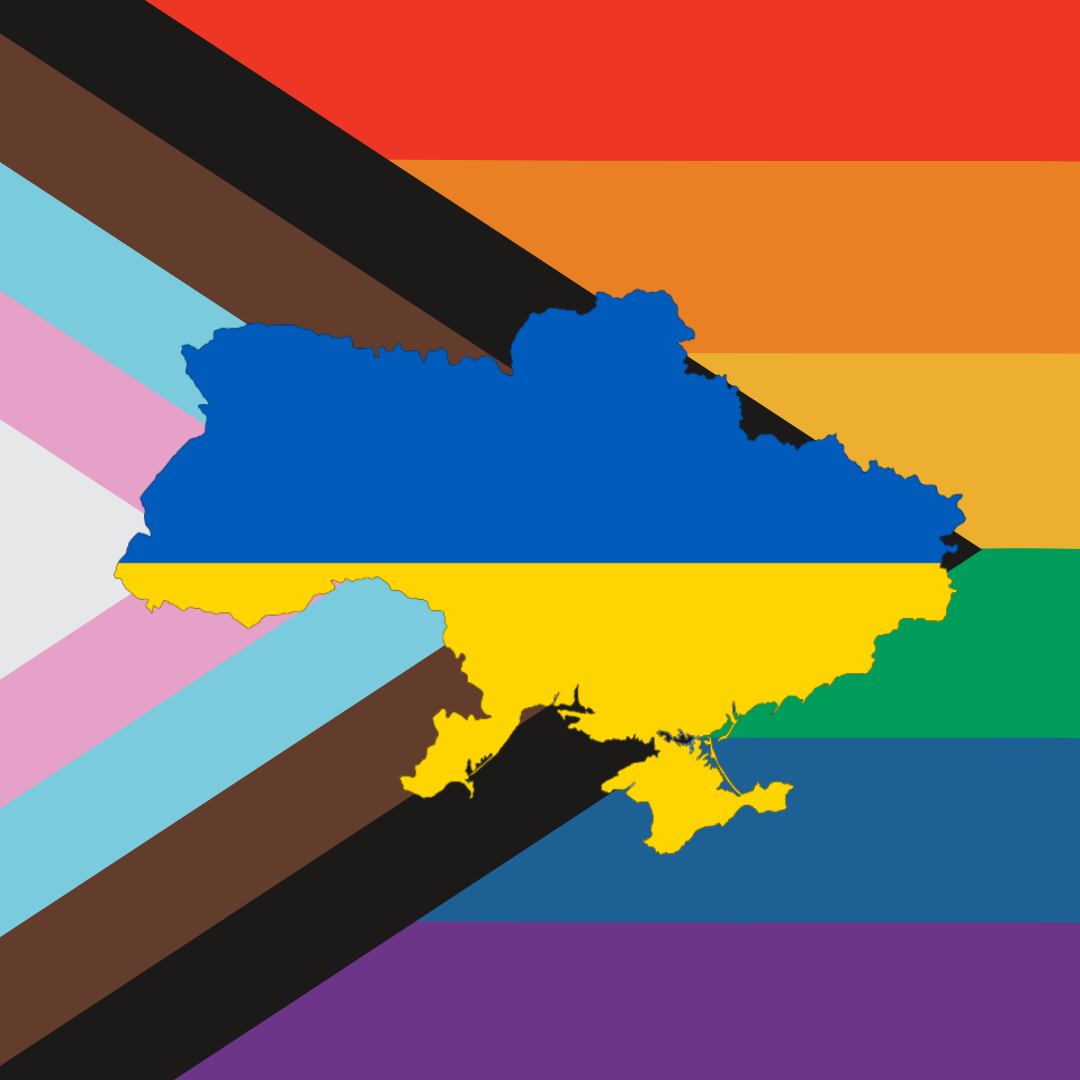
On February 24, 2022, Russia invaded Ukraine. Today, we commemorate the year of resilience and bravery of the Ukrainian people fighting against this aggression, supporting their communities, and surviving the biggest humanitarian crisis in Europe since World War II.
This war has brought profound challenges to Ukraine, including to the LGBTQI community, which remains one of the most marginalised social groups in the country. We praise the efforts of our partners in Ukraine – LGBTQI organisations and activists who are united today in providing humanitarian support for those who suffer from discrimination, exclusion, and economic hardship due to the invasion.
As international and regional human rights and LGBTQI advocacy organisations, we stand in solidarity with the Ukrainian LGBTQI community and wish to uplift the strength and resilience shown by so many queer organisations and individuals in the face of war. At the start of the invasion, LGBTQI activists in Ukraine immediately began establishing shelters for community members, arranging transportation for those fleeing occupied territories and losing their homes, and providing material support for those who are in need of food, medications, clothes, and other such needed supplies.
In addition to recognising the incredible humanitarian efforts that Ukrainian LGBTQI organisations and communities have undertaken, we also wish to highlight and support the advocacy efforts being undertaken to achieve equal rights for all LGBTIQ citizens – legal recognition of partnerships and parenthood, protection against hate crime, legal gender recognition, and the right to be free of discrimination in all spheres of life.
We honor and support all Ukrainian queer activists who continue to fight for civil partnerships for same-sex couples despite the complicated political situation and all the challenges that the Russian invasion brings to Ukraine. We strongly believe that LGBTQI Ukrainians must have equal rights now, and we urge Ukrainian politicians to work on these critical pieces of legislation.
On this one-year anniversary of the unjust invasion of Ukraine, we see how much the Ukrainian LGBTQI community has accomplished. During this very difficult year, the community has helped thousands of people survive, while also strengthening the movement and maintaining its visibility.
Yet, the fight is not over. We are so proud of our queer partners, friends, and colleagues in Ukraine and pledge to continue our support for as long as necessary during this unprecedented time. We remain united in solidarity with Ukraine and call on all communities all over the world to continue standing with their brothers, sisters, and non-binary siblings in the country as they continue the struggle.
Signatories:
Outright International
Transgender Europe
Edge Effect
ILGA-Europe
All Out
COC Nederland
European Pride Organisers Association
Copenhagen Pride
CSD Deutschland
CSD Bielefeld
CSD Rhein-Neckar
Oslo Pride
Sofia Pride
Warsaw Pride
Berlin Pride
Zurich Pride Festival
How we’re supporting LGBTI activists and organisations one year after the Russian invasion of Ukraine
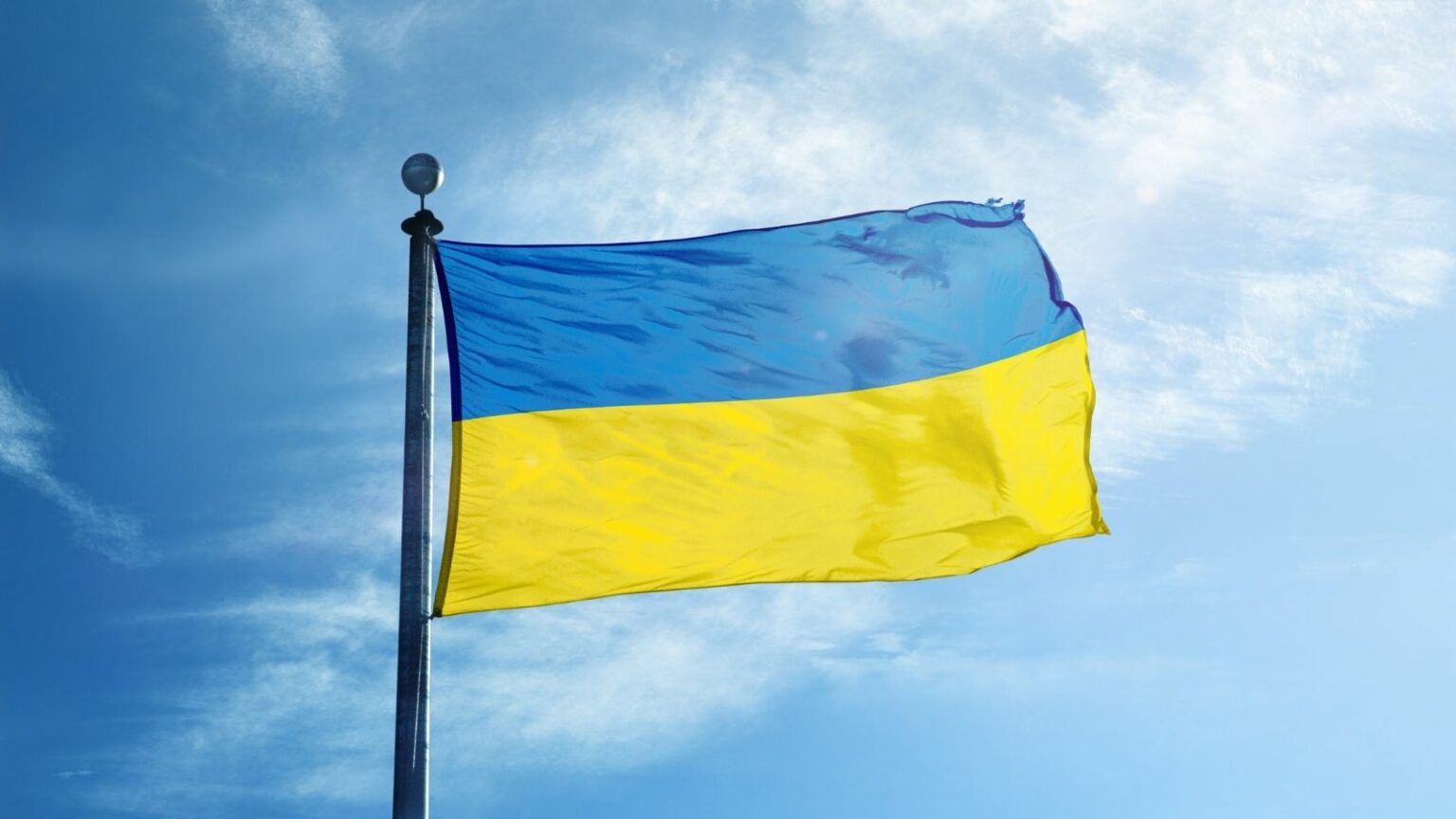
On 24 February 2022, Vladimir Putin ordered the full-scale invasion of Ukraine, leading to the largest armed conflict in Europe since the Second World War. For the last twelve months, civil society organisations across Europe, including ILGA-Europe, have had to run the extra mile to fill in the gaps, but sustainable responses remain a crucial challenge. Here’s the five main areas in which we’ve been working over the past year.
Exactly a year ago at ILGA-Europe we anticipated that the Russian invasion of Ukraine would lead to a war that would last longer than what was generally expected, and that it would have a deep and long-lasting impact on LGBTI people both in Ukraine and Russia, and beyond. We defined our support of those impacted by the invasion, and those helping them, as a marathon, not a sprint.
In the weeks following the February 24 invasion, several civil society organisations in Ukraine, neighbouring countries and beyond rolled up their sleeves to help LGBTI people who were either leaving and staying in the country. LGBTI activists and organisations in Ukraine, for whom providing humanitarian aid is not their main job, took on the mission of setting up shelters or getting medicines to those who needed them, getting people to borders or helping those who had difficulties leaving to safety, while organisations in host countries took on the task of welcoming and helping LGBTI refugees navigate the new circumstances they found themselves in.
At ILGA-Europe we asked ourselves two questions. How do we quickly react and give immediate and targeted help the LGBTI organisations and people who are providing humanitarian responses? And how could we provide that help on a more sustainable, longer-term level?
There have been and continue to be no simple solutions. Supporting the work is complex, dynamic and constantly evolving, but we have the resources and capacity to meaningfully provide targeted support, and we’ve known from the start that needing to be adaptable had to be part of our approach.
We certainly don’t want to write a version of this blog in a year’s time, but we must be prepared for the consequences of a war that has no clear end. This is how ILGA-Europe have been working over the past 12 months to support the movement as tries to support those affected by the war in Ukraine.
Supporting humanitarian work through funding
It is not breaking news that organisations in Ukraine need economic support. We have shifted a major proportion of our re-granting funds to give emergency help to local groups providing safety, food and shelter for LGBTI people. We are also supporting organisations outside Ukraine who are working with refugees and supply chains. During the last year we have issued 13 grants to Ukrainian groups with the total budget of €192,134, and six grants to other organisations in neighboring countries to support refugees from Ukraine, with a total budget of €112,935.
We also continue to raise awareness of the needs of LGBTI people among funders so they can mobilise resources.
Putting LGBTI needs on the agenda
LGBTI people have specific needs, however they are frequently overlooked by humanitarian and international institutions. Before the war, ILGA-Europe had very few links with the larger humanitarian sector, which is not an easy area to navigate. We strove to connect, and establish further connections among UN and EU institutions as well as national governments for their aid strategies to become fully inclusive, succeeding in putting the issue of specific LGBTI needs on the agenda. Through regular meetings with these institutions, we’ve raised awareness about the specific needs of LGBTI people affected the war and pointed to gaps in humanitarian interventions. Particularly, we are working on needs assessments to advocate funders and humanitarian actors. Through our ongoing engagement with humanitarian actors, we are identifying and pursuing concrete opportunities to connect them with LGBTI organisations serving their communities.
Coordinating medicine delivery
Trans and intersex people in Ukraine continue to experience difficulties accessing the medications they need. There is a gap between what humanitarian aids are providing and what trans and intersex people need. Civil society is left to fill in this gap. For example, at ILGA-Europe we have been, together with other LGBTI organisations, directly coordinating deliveries of hormones. While we will continue to do so for the time being, this remains an emergency solution that should be taken on by institutions in a more sustainable way.
Fostering a coordinate response from the movement
If you read our Annual Review 2023, you will see how many local LGBTI organisations stepped in to help refugees arriving to their countries. Outside Europe, LGBTI organisations also chipped in immediately to help in any way they could, including by sharing information about needs, mobilising funding and helping with direct support to groups on the ground. To be of most help we needed to be coordinated in our response, which would also allow us to be aware of the gaps of our collective support, we worked and continue to work to connect the many LGBTI organisations at regional and international levels who were stepping up to the plate, so they can complement each other and build from our respective strengths.
Helping LGBTI people leaving Ukraine understand their rights in the EU
When people fleeing Ukraine arrive in any EU country, they have a set of rights under the EU’s Temporary Protection Directive, such as family reunification and access to healthcare. We have briefed the limits of this directive to the European Commission and EU countries, while working to ensure that these rights are available for LGBTI people arriving to the EU from Ukraine.
How we Are continuing
A year on, while we continue to support organisations who had to shift their activities towards humanitarian work as the war goes on, we also step up our support for LGBTI activists engaged in political advocacy, seizing the moment of potential EU memberships to push for LGBTI equality and freedom in Ukraine.
As a well-resourced organisation, we will continue to respond to immediate emergencies while continuing to do the deeper, more sustainable work through new programmatic activities and multi-year grant-making that we know will have an impact. We recognise more and more that it is vital to have groups such as ILGA-Europe who are strategically there for the long term
In the meantime, we take this moment to recognise the suffering of all those caught up in this war, and we pay tribute to the work of activists and organisations in Ukraine, in unimaginable circumstances, to provide for the people in their communities.
Activists on Accession to the EU
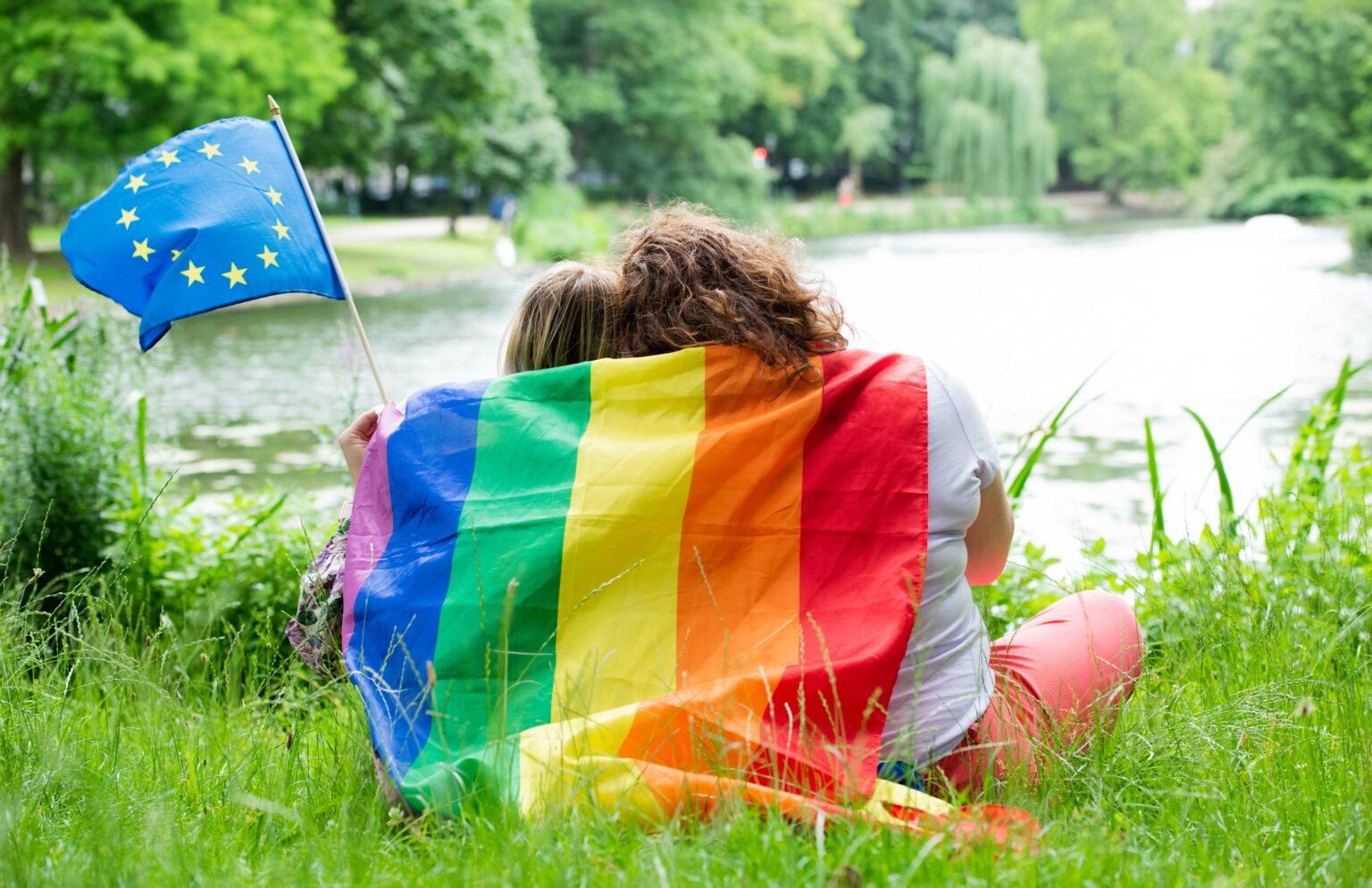
Although achieving EU membership can take several years, even decades, the accession process can already have a positive impact in LGBTI people in a candidate country. We speak to activists in the latest candidates, Ukraine and Moldova, and from Montenegro, which has been a candidate since 2010.
Since its foundation, the EU family has kept its doors open to new members who share the same values. They must be committed to apply, support and promote the EU’s democratic principles and practices in their territories and overseas. Once the request of a European state to join the EU has been agreed by current EU member states, the accession process begins. The benefits of joining are multiple, including access to billions of EU funding, visa free access to EU countries, and Free movement of labour, goods, services and capital.
During the process, the candidate country must satisfy a number of political and economic criteria as well as administrative and institutional capacity.
These criteria include respect for the human rights of LGBTI people. In our latest podcast at The Frontline we spoke to LGBTI activists in Ukraine and Moldova, the latest countries to have been granted candidate status, and in Montenegro, which has been a candidate member since 2010.
Lenny Emson, Ukraine
Lenny is the Director of KyivPride and a board member of Transgender Europe. Earlier this year, shortly after Russia invaded Ukraine in late February, the country applied for membership of the EU and it was granted candidate status just a few months later, along with Moldova. Lenny says the accession process “brings a bit of hope” to LGBTI people in a country that is still battling against Putin’s invasion.
“In practice this could mean the adoption of marriage equality and anti-hate legislation. Right now, if a person in a same-sex relationship gets hurt in the battlefield, their partner will not have the right to make medical decisions. This is why marriage equality in Ukraine is one of the priorities for LGBTI activists at the moment and the EU candidate status is pushing it up in the political agenda.~
Before the war started, anti-hate legislation to protect LGBTI people from biased-motivated crime was already in the makings. According to Lenny, its adoption would would be gaining a “right we’ve been fighting for in the five past years”.
Now more than ever, LGBTI activists advocate for the protection of sexual orientation and gender identity grounds as “anti-LGBTI groups that existed before the war now feel pretty much okay,” as Lenny explains. “Since the war started over 100 cases of LGBTI-phobic crimes have been reported to civil society organisations.”
Anastasia Danilova, Moldova
Anastasia is the director of GENDERDOC-M and a board member of ILGA-Europe. Just a few days after Ukraine’s request in early March 2022, Moldova applied for EU membership. The country also became candidate member in June.
“Definitely it’s a great opportunity for LGBTI people in the country,”. Anastasia says. There have been already some positive changes linked to the EU accession, like the ratification of the Istanbul Convention, which entered into force in the country in May, and the adoption of anti-hate crime legislation which includes sexual orientation and gender identity as protected grounds.
“Implementation will be a huge issue, but it’s already a big step. Until now, because of lack of legislation, crimes against LGBTI people were not registered in the official statistics.”
For Moldovans, the EU accession talks are also a security matter as pro-Russian parties try to destabilise the progressive government. “EU enlargement is the only chance for the future, for LGBTI people to enjoy equality,” Anastasia explains.
Danijel Kalezić, Montenegro
Danijel worked for years as the Executive Director of Queer Montenegro , but has now become the Co-director of ERA, the LGBTI Equal Rights Association. 12 years after Montenegro was granted EU candidate status, Danijel’s insights on the process and its impact are different to those from Lenny and Anastasia.
He sees a gap between “the paper” and the practice. “In many countries the EU enlargement is been used to improve the human rights framework. Montenegro is a good example of this. This year the country made it to the top-10 of the Rainbow Map and Index and has made major legislative changes in recent years to protect the rights of LGBTI people, including same-sex unions. However, if we look to what’s happening in real life, [the change] is not followed.”
This is because there are no communication campaigns following the legislative changes. “To enjoy all the rights that we have now on paper, we need to be able to change hearts and minds. And that change is not going as fast as the change of the legal framework,” Danijel says.
The EU candidate status can be “an amazing boost for the human rights of LGBTI people, to start conversations, but I would like to see more pressure from the EU on the government and stakeholders to talk about the importance of this process.”
Danijel points out to the need of speaking of human rights not only important to become a member of the EU, but above all, for all citizens of the country.
Danijel, Anastasia and Lenny are all guests on our latest two-part podcast episode exploring the effect of the EU accession process on candidate countries, alongside former member of European Parliament, Marije Cornelissen, who has worked extensively on the accession process, and ILGA-Europe’s advocacy director, Katrin Hugendubel, to talk about our long history of working alongside candidate countries to advocate for LGBTI rights and equality.
The Frontline: LGBTI Equality and Accession to The EU
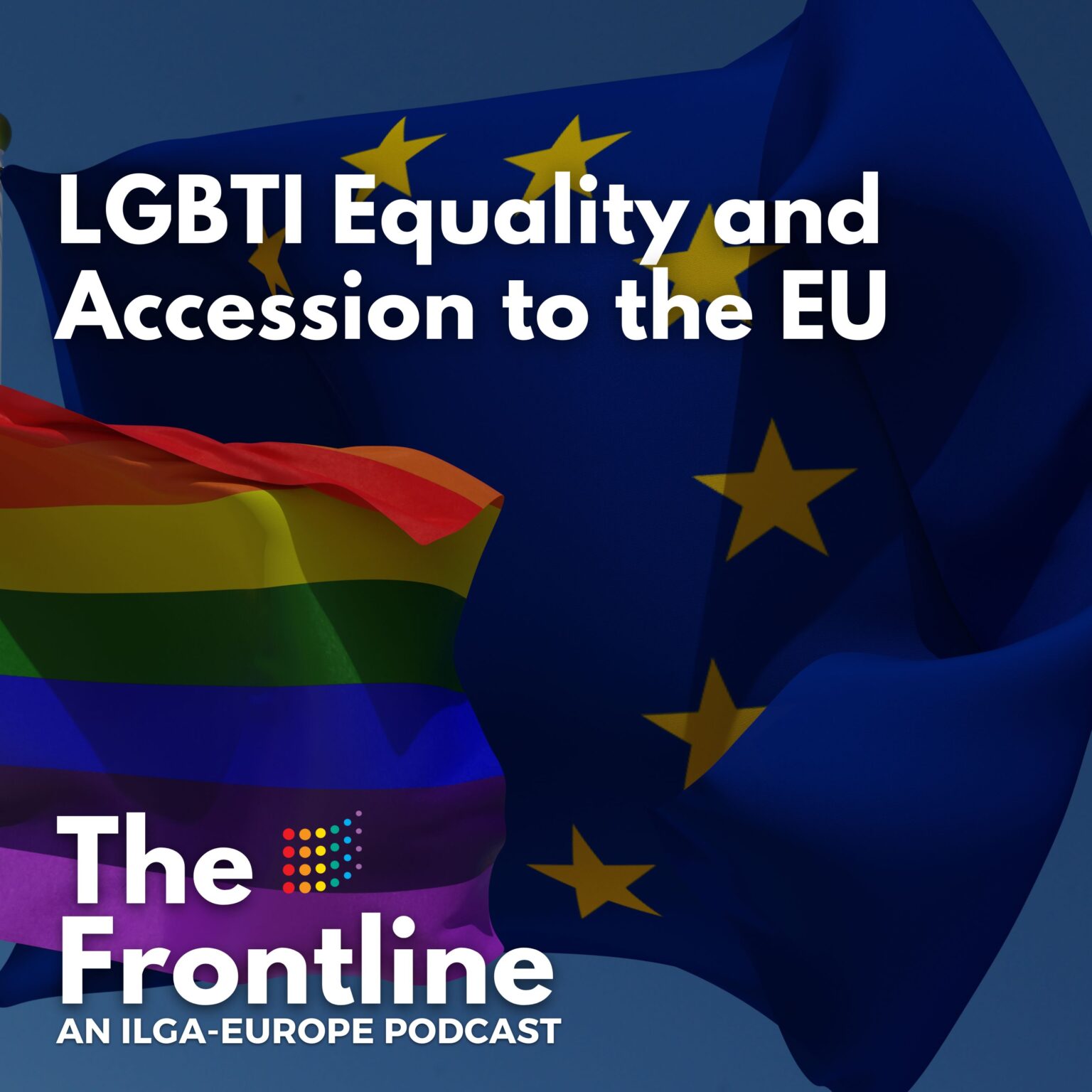
In this two-part episode of The Frontline podcast, presented by Belinda Dear, we’re looking at the new wave of accession to the European Union and what it will mean for LGBTI people.
With the recent news that Ukraine and Moldova are now candidates to the EU, the topic of EU accession is on the radar again, while Western Balkan countries such as Serbia, North Macedonia and Montenegro have been going through the process for some years now, and Turkey not acceded since its application in 1987.
With the current state of LGBTI rights in Central Europe, highlighted most recently by the Serbian government’s anti-democratic instrumentalising of LGBTI people in an effort to try to stop EuroPride in Belgrade, how does this kind of backsliding play into the accession process? And what about countries like Ukraine, where LGBTI rights have barely been on the governmental agenda? What are the opportunities to be gained by candidacy for joining the EU?
To discuss these questions and more, we’re joined by former member of European Parliament, Marije Cornelissen, who has worked extensively on the accession process, Lenny Emson from Kyiv Pride in Ukraine, Anastasia Danilova from GENDERDOC-M in Moldova, and Danijel Kalezić, who worked for years as the Executive Director of Queer Montenegro, but has now become the Co-director of ERA, the LGBTI Equal Rights Association for the Western Balkans and Turkey . We’re also joined by our Advocacy Director, Katrin Hugendubel to talk about ILGA-Europe’s deep and long-term experience of working on accession countries, which has been happening for 25 years now.
Listen below or click here to listen and subscribe to The Frontline on your favourite podcast platform.
Why our Equality Fundraiser was an essential moment of queer solidarity
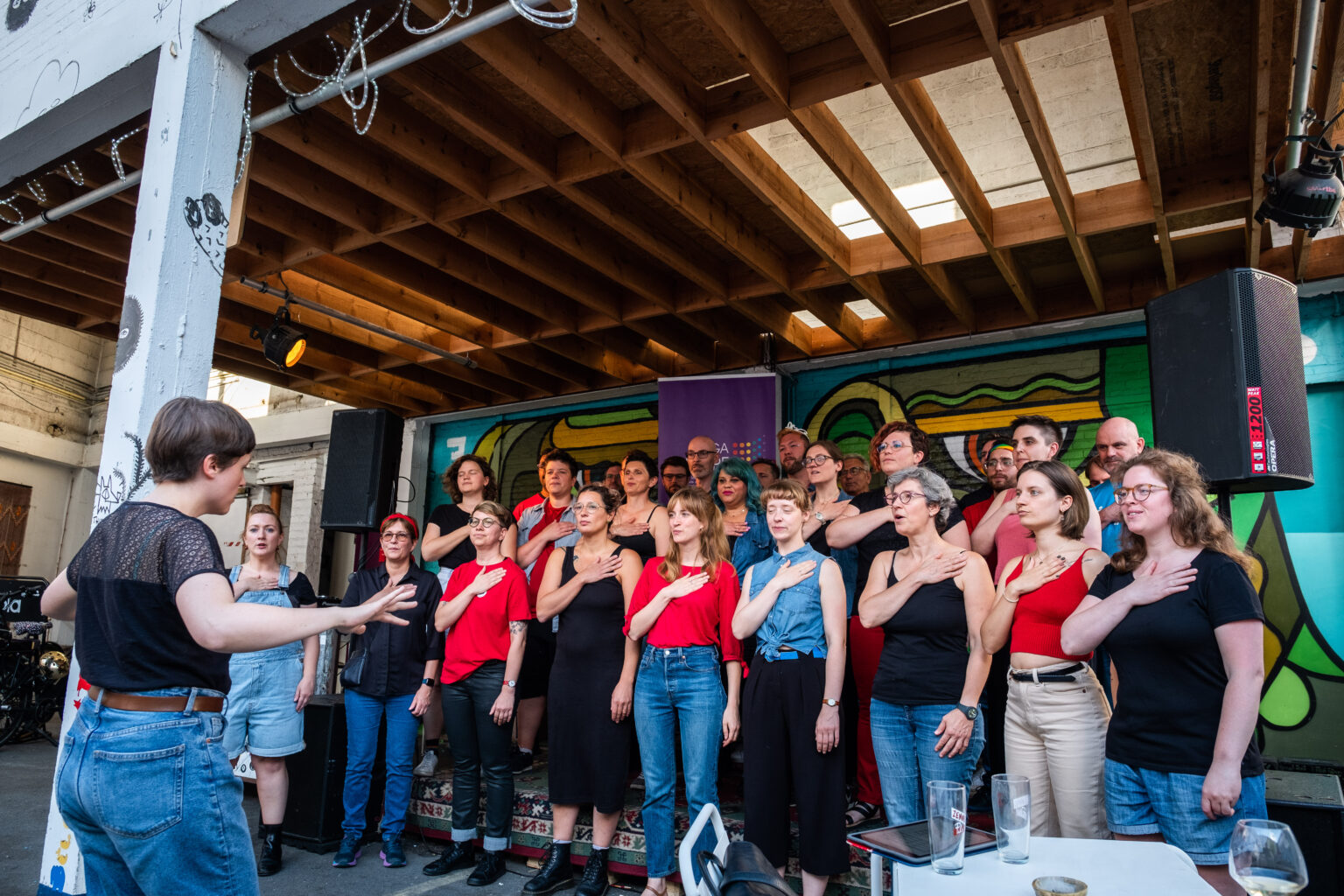
After two years of not being able to be together in person, our friends and allies joined us for an evening of solidarity this year, with all funds raised going directly to organisations helping LGBTI people affected by the war in Ukraine. Here’s why we need support more than ever.
Did you know that the entirety of the budget in the whole world going to LGBTI work from government institutions and foundations is less than what one anti-LGBTI organisation in the United States spends in a year? Often this money is spent to exert influence in Europe and Central Asia.
Hard to believe, right? As our Executive Director, Evelyne Paradis said in her welcome speech at the ILGA-Europe Equality Fundraiser on June 28 in Brussels: “Those who want to see LGBTI rights, gender equality, reproductive rights wiped out are being funded beyond the scope of our imagination.”
While ILGA-Europe works tirelessly in collaboration with and on behalf of organisations across 54 countries in Europe and Central Asia to combat those forces, this year our annual fundraising event was dedicated to fundraising to support the work we are doing with and for LGBTI people impacted by the war in Ukraine. All ticket and bar sales and other funds raised on the evening, will go to directly support organisations in the frontlines.
If you have any experience of living in Brussels, you’ll know that sunny weather can never be guaranteed, even at the height of summer. Luckily, for the evening of our fundraiser, the first in-person event we’ve been able to hold in two years, the sun was well and truly out. Usually known as the European Equality Gala, this year we reinvented the event a little, mindful that while the war continues in Ukraine, it is not a time for huge celebrations. With a comfortable and cool new venue, the dress code was casual, the atmosphere was relaxed and with the support from our sponsors DIAGEO, visit.brussels and Google, we had a proper night of solidarity, complete with entertainment from DJ Melissa Juice and the fabulous queer choir, Sing Out Brussels!.
At the beginning of the war in Ukraine, there was a mass mobilisation of fundraising as well as a great focus from the media. At ILGA-Europe we recognised from the beginning, that the response needed was going to be a marathon, not a sprint. However, media are not so interested in marathons. As news cycles have moved on, so has the focus on the needs of those caught up in the conflict, and the donations aren’t being made in such abundance anymore.
We have continued to work hard ever since to directly support LGBTI people caught up in the conflict, and the organisations that are helping them, while keeping up with our usual work across Europe and Central Asia. We stepped up our support of working for the betterment of LGBTI people in Ukraine and beyond.
Much of this work takes place behind the scenes, for instance:
- We have given 240K in grants to support organisations that are providing shelters, access to basic necessities and medication, psychological support to people in Ukraine and those who have left the country.
- We’ve been working with colleagues in other LGBTI organisations to organise shipments of medications and hormones to trans people in Ukraine.
- We’ve been bringing the needs of LGBTI organisations to the attention of larger funders, mobilise foundations and connecting LGBTI groups to funding opportunities
- We’ve been advocating with EU institutions and governments for the safety, health and wellbeing of LGBTI people caught up in the conflict and those fleeing Ukraine
- We’ve been breaking new ground by working directly with UN agencies on the ground to develop some of the first LGBTI specific guidelines for humanitarian agencies
- We’ve been connecting groups working to support refugees to exchange information and expertise to make sure as many people as possible are taken care of
That’s why moments like the ILGA-Europe Equality Fundraiser are needed. Sadly, recent events like the hate-motivated killing of two people and injury of several others outside a gay bar in Oslo, the mass arrests of participants at Istanbul Pride, and the turn-back on abortion rights in the US, have reminded us that the work for equality is never done.
But, as our Executive Director reminded us on the evening: “Our movement has great power, great resilience, and the ability to stand up for and care for our fellow human beings.”
Let’s continue to do that work together, on behalf of our fellow human beings. A heartfelt thank-you to all people who were at our fundraiser, helping us to continue our vital work, and even if you couldn’t join us, remember you can support our work all year long through our donations page.
Here are some of our favourite moments from the ILGA-Europe Equality Fundraiser 2022:
Briefing Note: Securing access to border crossings for vulnerable LGBTI people in the context of the war in Ukraine
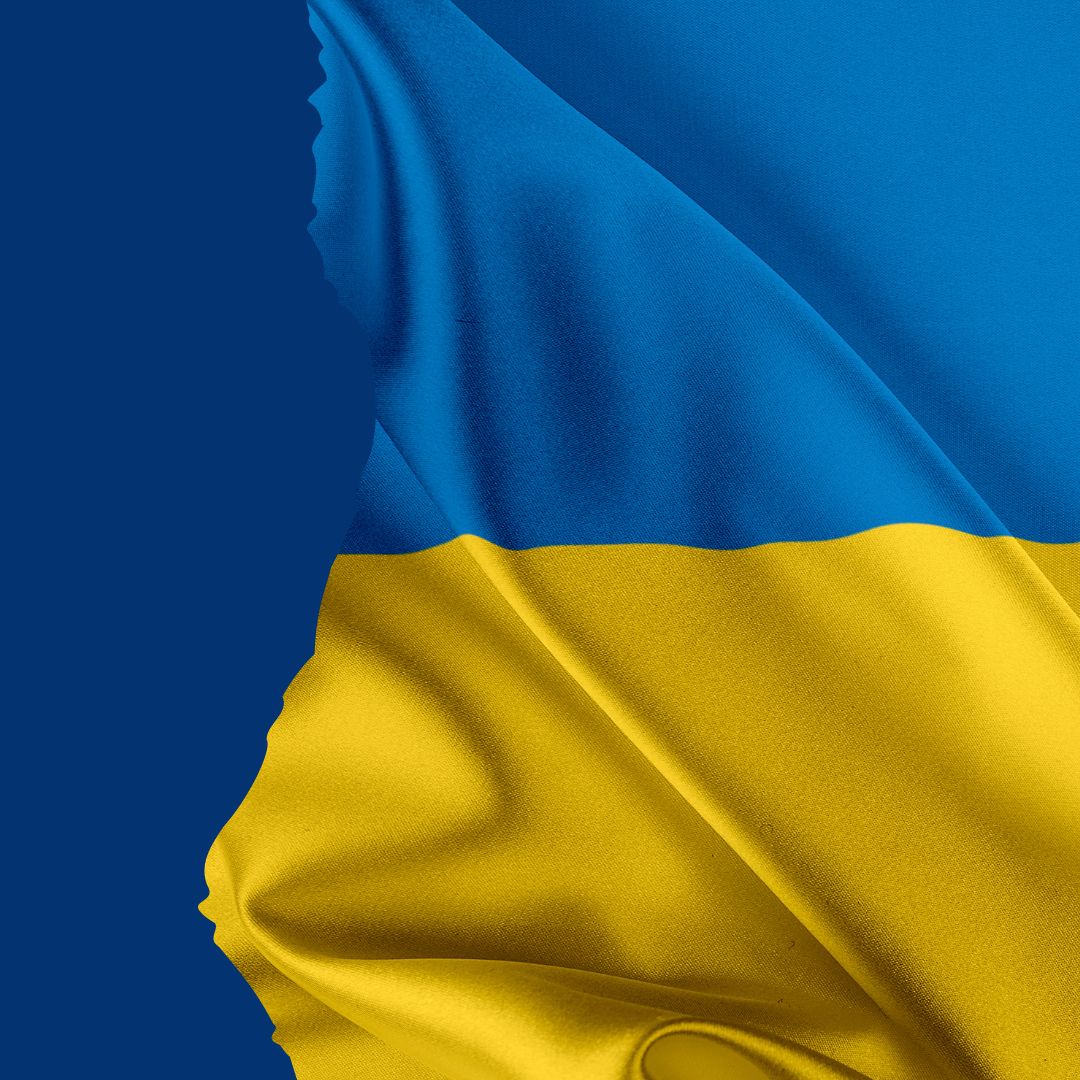
LGBTI people in the context of the war in Ukraine, like everyone, have many reasons to stay in Ukraine or to leave the country. Like their fellow citizens, LGBTI people are staying, supporting each other, providing mutual aid, and fighting against the Russian invasion. LGBTI people, however, face additional barriers to fleeing the country, including structural homo- and transphobia, which can occur in many contexts.
The United Nations has identified LGBTI people as a group specifically affected by the war in Ukraine
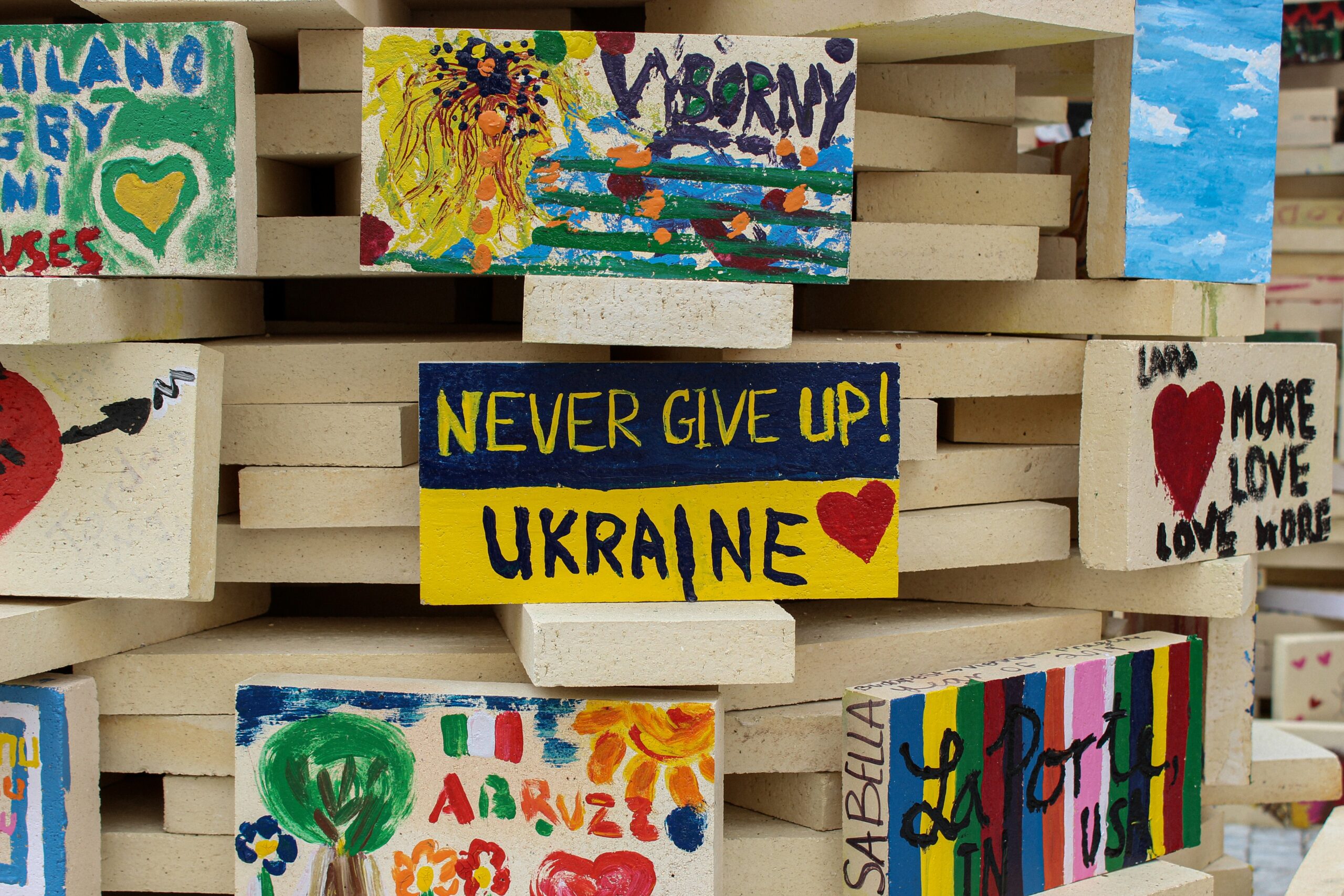
Working alongside ILGA-Europe, the UN has published recommendations For humanitarian actors working with LGBTI people affected by the war in Ukraine.
In all wars, LGBTI people have the same basic needs as everyone else, however, because of their real or perceived sexual orientation, gender identity and/or sex characteristics, they are at higher risk of exclusion and violence.
As ILGA-Europe’s Executive Director Evelyne Paradis explained in our previous blog: “Humanitarian crises affect everybody, however, some communities sometimes need a targeted response because of pre-existing vulnerabilities. These particular vulnerabilities make people feel unsafe when dealing with humanitarian organisations providing safe shelter, basic necessities food and medical aid. Not knowing if they will be treated without discrimination, simply welcomed and be taken care of, is a barrier for people in accessing humanitarian support.”
This is why ILGA-Europe have worked together with the UN, via its Protection Cluster Ukraine, on a list of recommendations for humanitarian actors and service providers working with people affected by the war in Ukraine, so they can better understand and address the risks faced by LGBTI people staying or fleeing the country.
Here are the core recommendations:
Ensure inclusive programming, advocacy and responses
- Collect data that is disaggregated by sex, gender, age and disability as well as data relating to specific protection needs, risks and barriers LGBTI people face.
- Map presence and reach out to LGBTI organisations to learn about their work.
- Establish specific LGBTI reception measures, such as gender-neutral options on registration forms or special hours and days for LGBTI people to register.
- Encourage the active participation of LGBTI individuals in programmes and activities.
- Link specialised LGBTI centres and shelters to the humanitarian aid system.
- Include staff from different genders and backgrounds
- Address barriers for LGBTI people to access social services and programmes
- Include funding opportunities for LGBTI-led organisation in your resource mobilization actions.
- Raise awareness of the situation of LGBTI people affected by the war
- Advocate for non-discriminatory provision of services to LGBTI people by humanitarian actors, civil society organisations, governments and others.
Create safe spaces
- Ensure that staff working in Ukraine are sensitive to the concerns and needs of LGBTI people.
- Respect individual preferences and privacy.
- Communicate through your staff members that your organisation is a safe space
- Seek out and create safe, confidential and effective referral systems and partnerships.
- Advocate for inclusive treatment by medical and healthcare professionals
- Facilitate links between LGBTI people in Ukraine and the wider LGBTI community
- Allow trans, intersex and non-binary people to choose the housing option, scattered-site housing or communal, they believe is safest for them.
Ensure accountability to the affected population
- Consult with LGBTI people on how they want to participate
- Ensure that LGBTI individuals are well informed about their rights
- Ensure that there is two-way communication with LGBTI people via their preferred channels.
- Provide a space where LGBTI people can meet safely
- Engage LGBTI people in gender-based violence prevention and response.
Joint committment to LGBTI people in and fleeing Ukraine

On May 17, UNAIDS and ILGA-Europe co-hosted an event addressing the existing gaps within the humanitarian response to the war in Ukraine, concluding with recommendations to better protect the human rights of LGBTI people staying in Ukraine or who have left.
On 17 May, people around the world came together to celebrate the International Day against Homophobia, Transphobia and Biphobia (IDAHOBIT) to champion inclusion and build a better world for the lesbian, gay, bisexual, transgender and intersex (LGBTI) community. In many countries, lack of adequate legal protection against discrimination on grounds of sexual orientation and gender identity exposes many LGBTI people to violations of their human rights. This is even more the case within the context of war and humanitarian crisis, as currently experienced in Ukraine.
UNAIDS and ILGA-Europe co-hosted an event, moderated by Cianán B. Russell, Senior Policy Officer, ILGA-Europe, to mark IDAHOBIT. The event brought together LGBTI representatives and a wide range of thought leaders, policymakers and practitioners.
The panellists highlighted the multiple vulnerabilities and challenges facing LGBTI people in and fleeing from Ukraine during the war. These vulnerabilities and challenges were clearly articulated by two LGBTI representatives.
“Levels of discrimination, violation of rights and hate crimes have risen in Ukraine since the start of the war. Meanwhile, no regulations or specific measures have been put in place in shelters to protect key populations. LGBTI people have no safety net since the war started,” said Olena Shevchenko, from Insight. “Go to local organisations and ask them what they need if you are intent on helping Ukraine. Ensure the accountability of humanitarian missions to fulfil the needs of the local community,” she added.
Tymur Lysenko, a Ukraine crisis consultant working for Transgender Europe, spoke about the essence of true humanitarian support, saying, “’Leave no one behind’ should work, and not just be empty words. Trans people in Ukraine should be provided with humanitarian support, safe evacuation and access to medical care, and functioning gender recognition regulation procedures. Foster direct connections that are strong and sustainable between local organisations and international humanitarian missions. Stick to organisations that have a track record in providing direct support to LGBTI people.”
Reflecting on their own work and experiences, the panellists also reviewed the actions taken to date to protect the human rights of LGBTI people in and fleeing from Ukraine and the existing gaps within the humanitarian response and concluded with recommendations and commitment to better protect the human rights of LGBTI people staying in Ukraine or who have left.
“Humanitarian agencies must ensure that civil society organisations with expertise are included in the planning and implementation of all humanitarian assistance and in recovery efforts,” said Victor Madrigal-Borloz, a United Nations Independent Expert on Sexual Orientation and Gender Identity.
This was echoed by Kate Thomson, Head of the Community, Rights and Gender Department at the Global Fund to Fight AIDS, Tuberculosis and Malaria (Global Fund), who referred to the need for all partners to work collectively to build back resilient health and community systems. “All partners to work together to support access to HIV services in Ukraine, including those led by LGBTI communities, inside Ukraine and abroad. Let’s work collectively to help Ukraine build back better its health and community systems,” she said.
Matthew Kavanagh, UNAIDS Deputy Executive Director, a.i., spoke about the importance of maintaining and increasing the funding for the AIDS response. “We stand with the Ukrainians who are fighting so hard to make sure that their responses — the AIDS response, the community response, the rights response, the LGBTI response — are not destroyed by the moment that we are in now. There is an urgent need to move funding towards that, and an urgent need to fund the Global Fund at the same time. We cannot choose between these two things or we will end up in a less safe world — we have to do both,” he said.
Joanna Darmanin, Head of the Humanitarian Aid Thematic Policies Unit, European Union Directorate-General for European Civil Protection and Humanitarian Aid Operations, reiterated the European Union’s commitment for an inclusive humanitarian response. “Supporting Ukraine and neighbouring countries remains the priority for the European Union, and we remain committed to providing humanitarian support in an inclusive manner, taking into account the specific needs and vulnerabilities faced by the LGBTI community,” she said.
This commitment was re-echoed by Katalin Cseh, Member of the European Parliament Committee on Foreign Affairs, who promised to work for inclusiveness of the LGBTI community. “I pledge to fight with all my means to ensure better consultation with the LGBTI communities on the ground in Ukraine and also within the European reception area.”
Maria Arena, Chair of the European Parliament Subcommittee on Human Rights, highlighted the need to position the humanitarian response to the needs of LGBTI people, saying, “The conflict zones are putting at risk people with these vulnerabilities, so we have to be really aware of the situation and to adapt our answers for the needs of these people, including with traceability of these funds.”
Marc Angel, Co-President of the European Parliament LGBTI Intergroup, emphasised the importance of ensuring that promises made correspond with funding. “Action and money must follow words and promises,” he said.
Valeriia Rachynska, from the Global Partnership against All Forms of HIV-Related Stigma and Discrimination, spoke about the Global Partnership’s commitment to fight for and save all lives, saying: “Our main target is to save and fight for life; we will do everything in our power to save the lives of LGBTI people in Ukraine.”
Indeed, to champion and build a better world for the LGBTI community, and to end inequalities for an effective AIDS response, especially in a humanitarian crisis context, institutional actors with differing responsibilities must ensure that no one is left behind.
This among others, includes directed action to: combat discrimination targeting LGBTI people and people living with HIV,?rebuild or reinforce the HIV response system, meaningfully engage LGBTI civil society both in crisis planning and in crisis response systems, ensure that LGBTI-led humanitarian efforts are adequately resourced and?ensure that human rights violations faced by LGBTI people are documented, investigated and result in access to justice.?
Integrating LGBTI inclusive Gender Based Violence risk prevention, reduction and mitigation in the context of war in Ukraine

The ongoing war in Ukraine has resulted in the need for immediate action to address the needs both of a significant population of Ukrainians fleeing the armed conflict, as well as for those who are staying in Ukraine. LGBTI people are often amongst vulnerable groups in crisis situations and specific attention is needed to ensure that they are safe, have safe refuge and that some fundamental basic needs are being met – ensuring they are not left behind.
Keeping LGBTI people safe as the war in Ukraine continues
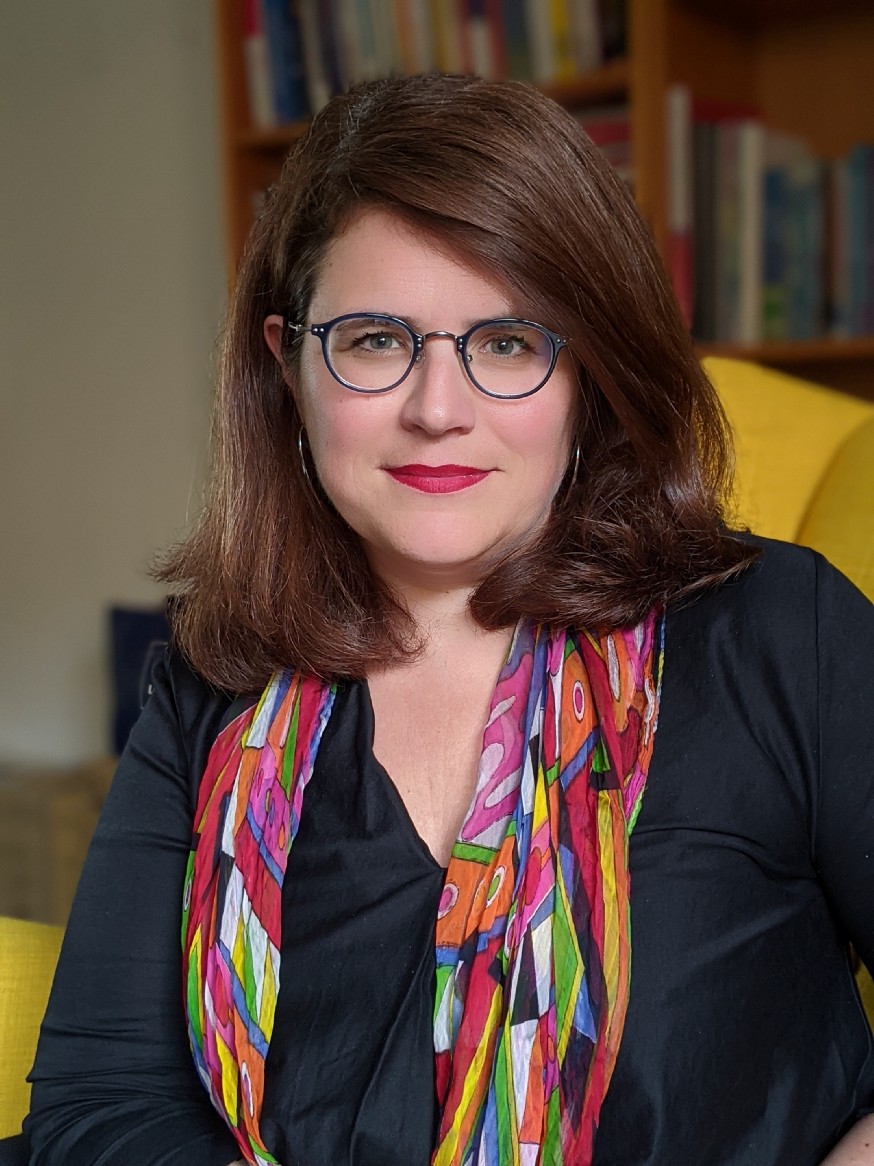
To mark IDAHOBIT on May 17, ILGA-Europe and UNAIDS, the Joint United Nations Programme on HIV/AIDS, will host an event focusing on the rights of LGBTIQ+ people in and from Ukraine. Here, our Executive Director, Evelyne Paradis speaks to UNAIDS about the particular challenges facing LGBTIQ+ people caught up in war.
Hi Evelyne, how do humanitarian crises particularly affect LGBTI people?
Humanitarian crises affect everybody, however, some communities sometimes need a targeted response because of pre-existing vulnerabilities. These particular vulnerabilities make people feel unsafe when dealing with humanitarian organisations providing safe shelter, basic necessities food and medical aid. Not knowing if they will be treated without discrimination, simply welcomed and be taken care of, is a barrier for people in accessing humanitarian support.
ILGA-Europe is heavily involved in the Ukraine crisis. What are the main challenges facing LGBTI people affected by the war?
In the Ukraine crisis, what we are seeing is that LGBTI people are not de facto integrated in first aid supply chains. Transition-related and intersex-specific medication, such as hormone replacement therapy, and to a certain extent medicines for people living with HIV, are not ensured in humanitarian packages at the moment. On top of this, a significant portion of the LGBTI community cannot meet their basic needs, due to pre-existing socioeconomic inequalities.
Trans women with a male gender marker on their documents can be obliged to join the army or cannot leave the country along with other women, which puts them in a potentially very harmful situation.
Having access to safe shelter is also an issue. In Ukraine, many LGBTI people don’t feel safe to be ‘out’ in regular shelter, while some who are displaced in the country are reporting facing discrimination when trying to rent an apartment. As a result many of the LGBTI groups have set up shelters to support their communities. Some of those who are staying and are visible have been physically attacked, as LGBTIphobia was already an issue in Ukraine before the war.
This is all happening while LGBTI people face the same struggles everyone else is facing; money, food, caring for loved ones, and so much more.
What are organizations like ILGA-Europe doing to help?
We are sending direct financial support to groups who are staying in Ukraine and are providing direct support to their communities, as well as to LGBTI groups in hosting countries. We’re also actively working to mobilise resources for all the LGBTI groups working in support of LGBTI people in Ukraine and abroad. We’re working with large humanitarian groups and organisations like UNAIDS and connecting them to the needs on the ground, while advocating with European institutions and governments to take action both in support of LGBTI communities in Ukraine and for LGBTI people who have left the country.
What can be done to better address the unique needs of LGBTIQ+ people in humanitarian crises?
What we are seeing is that an LGBTI perspective is really not integrated into humanitarian work and the development of protection measures, such as protection from gender-based violence or access to medicines. In many ways we have had to start from zero, including having to establish contacts with actors in the humanitarian sector.
While it is still early in this particular crisis to have specific recommendations, there will be no doubt be a lot of learning to be done from the work currently happening, so that we make sure that in future LGBTI perspectives and needs are integrated in the way humanitarian actors respond from the start.
Many civil society and community organizations are supporting LGBTI people affected by the war in Ukraine. What challenges do they face in carrying out this important work?
Most LGBTI organisations are not set up to be doing humanitarian work, and yet they are supporting basic needs in addition to the work they continue to do for their communities. But they cannot do it all. If they become the first point of support and assistance, there’s a lot of other work, like advocating for rights, that will not be done. This is true in Ukraine as well as in hosting countries.
Inequalities, stigma, discrimination and human rights violations against are continuing to prevent LGBTI people from being able to access the HIV and health services they need. How can we achieve positive political, legal and social change?
The work that has started with the humanitarian sector shows there’s a need, but it’s also an opportunity. If the humanitarian sector incorporates an LGBTI perspective and LGBTI people in their work from the start, this can mean a positive change for these communities, especially in times of crisis.
Register now for tomorrow’s event by ILGA-Europe and UNAIDS focusing on the rights of LGBTIQ+ people in and from Ukraine.
This interview was originally published on UNAIDS’ website.
IDAHOBIT 2022: Rights of LGBTQI+ people in and from Ukraine
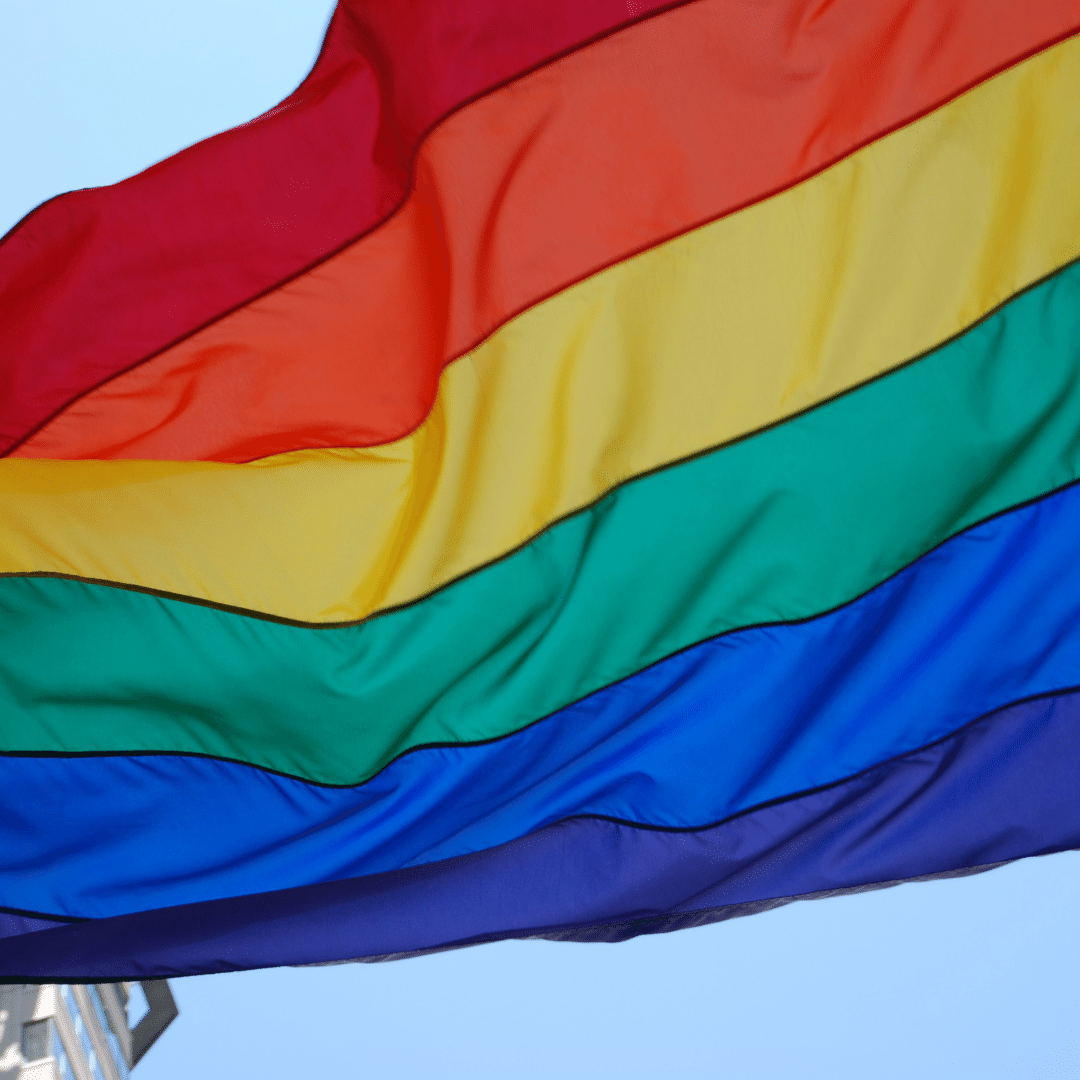
On the occasion of IDAHOBIT, ilga-EUROPE and UNAIDS are hosting an event focusing on the rights of LGBTIQ+ people in and from Ukraine.
The event will take place on Tuesday, 17 May from 12:00 – 13:30 CET.
The interactive panel session will be moderated by Cianán Russell, ILGA-Europe’s Senior Policy Officer to discuss how to better protect the rights of LGBTIQ+ people in and from Ukraine.
The event will bring together:
- Victor Madrigal-Borloz, UN Independent Expert on sexual orientation and gender identity
- Olena Shevchenko, Representative of the Ukrainian LGBTIQ+ Community
- Tymur Lysenko, Representative of the Ukrainian LGBTIQ+ Community
- Matthew Kavanagh, UNAIDS Deputy Executive Director a.i.
- Marc Angel, Co-President of the European Parliamentary Intergroup on LGBTI rights
- Maria Arena, Chair of the European Parliament Subcommittee on Human Rights
- Katalin Cseh, Member of the European Parliament Committee on Foreign Affairs
- Joanna Darmanin, Head of Unit Humanitarian and Thematic Policies (C1), DG ECHO
- Kate Thomson, Head of Community Rights and Gender Department, The Global Fund
- Valeriia Rachynska, The Global Partnership to End HIV-Related Stigma and Discrimination
#LesbianVisibilityWeek: The situation for lesbian women in and from Ukraine
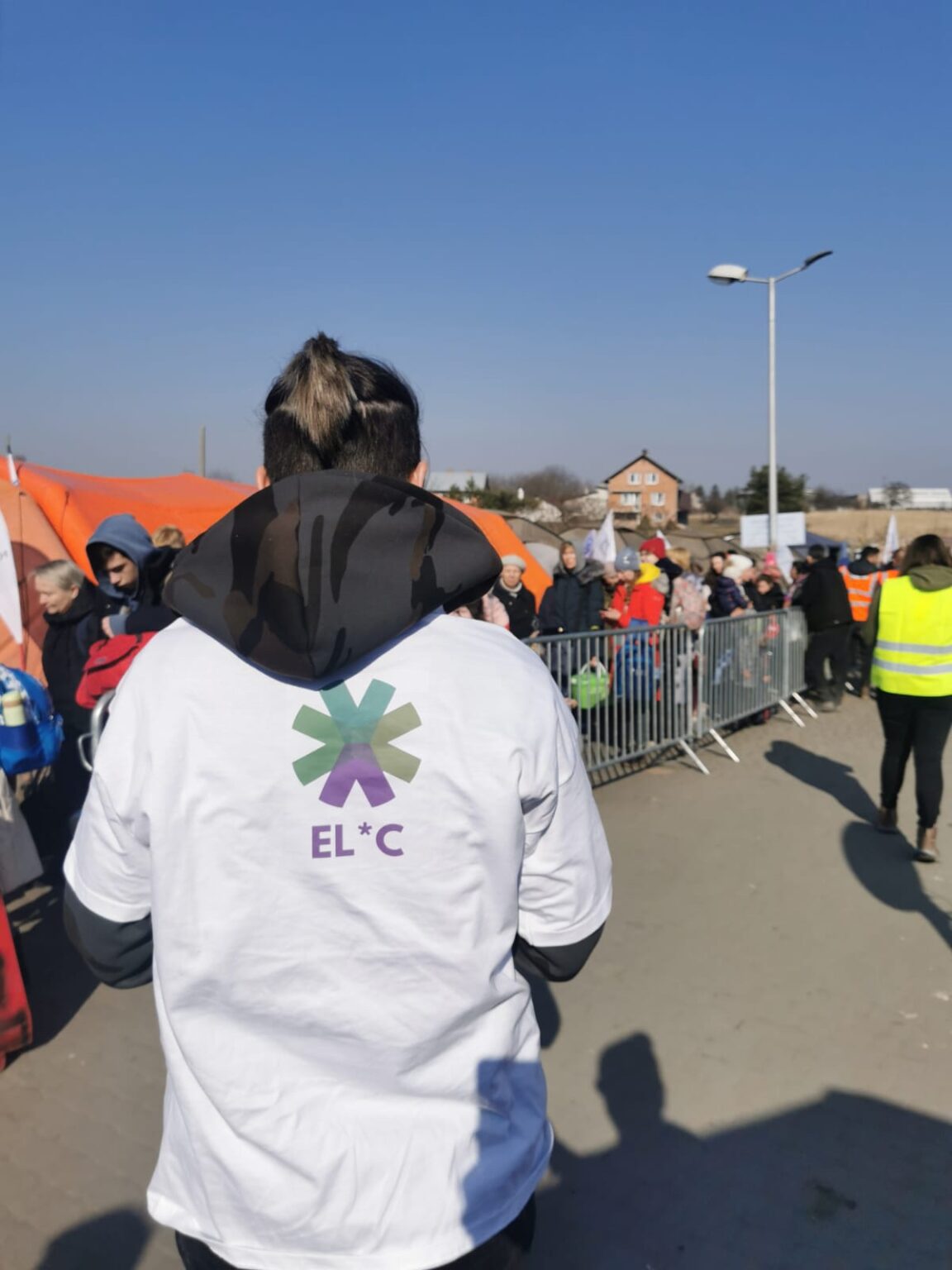
Like all members of the LGBTI community who have either remained in Ukraine, or are on the move to a safer place, lesbians are facing specific challenges and needs. This Lesbian Visibility Week, we’re learning more.
“When something goes wrong, we roll up our sleeves and get things done,” says Dragana Todorovic, board member of EL*C, otherwise known as Eurocentralasian Lesbian Community. Since the war in Ukraine erupted EL*C, have set up safe houses at the Polish border, relocated refugees across Europe and much more. But there is much more to be done, and as Dragana and her colleagues have identified, lesbians are facing very specific challenges as the conflict continues. Here Dragana tells us about work of EL*C activists on the frontlines in Ukraine, the needs that are arising as the war continues, and how you can support.
Dragana, can you tell us what the needs of lesbian communities still in Ukraine are?
In addition to the needs of the entire population within the country in terms of safety and essential goods, lesbian communities need spaces and routes that are inclusive and where they will not fear lesbophobic violence or discrimination, nor be compelled to re-closet themselves and their families.
In every conflict or humanitarian crisis, women, LGBT persons, and members of minority groups, find themselves in more precarious situations, as scapegoating and prejudice is often exacerbated. Our communities are also less likely to seek assistance from the mainstream providers due to lack of trust in the attitudes of authorities (and society at large) towards them and their families. We have indeed observed that LBTQI women and non-binary persons tend to rely on their own, community-based, support systems, which therefore need to be strengthened and sustained, so as to prevent isolation and scarcity for our communities.
This in turns underlines the paramount importance of supporting and protecting the activists themselves, who are leading such initiatives and have stayed in Ukraine, to help not just the LGBTIQ community, but the Ukrainian population as a whole, by delivering and dispatching goods across the country, towards the elderly, women and children, but also the military.
Despite this, lesbian activists remain highly exposed to lesbophobic violence, as we were unfortunately reminded recently, when Olena Shevchenko, the director of Insight and Board Member of EL*C, was tear-gassed in the street while unloading a truck of supplies.
Lastly, lesbian communities inside Ukraine need information — be it about where to find safe shelters inside the country or what their rights and options, should they need to leave the country. They need to be provided with easily accessible and up-to-date information to arrange safe routes for their travels — inside or outside Ukraine — and choose an adequate destination for their and their families’ potential relocation. This includes being able to reach out to the lesbian and refugee networks that will support them along the way and facilitate their integration in the host country.
What work is EL*C doing on the frontline?
On the front line, we started by setting up several safe houses at the Polish border and opened an emergency helpline, through which we provide information, organise pick-ups at the border crossings, and transfer people to one of the safe houses. We currently operate three of those, which can accommodate up to 25 persons and their pets, and where they can rest, access medical care if needed, and are supported in finding a long-term suitable relocation plan. We also coordinate with our partner organisations in other neighbouring countries to make sure that we cover Poland, Slovakia, Hungary, Romania and Moldova, and have re-granted to our partners in Romania and Moldova to support their efforts.
Beyond the borders, we have been managing a 500 household-strong network of hosts all over Europe, where we find good matches to relocate refugees, whether they have come through the safe houses or not. We arrange their journey, support them with the administrative obstacles that may occur, such as lacking documents to travel with their pets, transporting medical treatments and so on, and assist them through the processes of obtaining protection and settling in the destination countries.
Lasty, we rapidly mobilised to collect supplies upon the request of our Ukrainian partners, and set up a system to deliver essential goods, medication, or anything else needed to the shelters in Lviv and Chernivtsi. The last delivery was a shipment of several hundreds of cat containers and pet food, donated by the Foundation Brigitte Bardot!
“We started by setting up several safe houses at the Polish border and opened an emergency helpline, through which we provide information, organise pick-ups at the border crossings, and transfer people to one of the safe houses.”
Dragana Todorovic
It should be stressed that EL*C has been helping everyone coming its way, but we are naturally primarily contacted by lesbians* and their families, which extends also to parents and grand-parents, or in a very typical dyke-dramatic way, to exes and exes’ partners and their own parents and children. It is heart-warming and empowering to see how our community sticks together and how we construct our own support systems when we cannot rely on the traditional family and societal structures.
Have you identified specific needs of lesbians arriving from Ukraine to other countries?
Similarly to the lesbians internally displaced, lesbians arriving in other countries need to be protected while on the move and upon arrival, as they are often more isolated and therefore more exposed to abuse or trafficking for example. They also need to have effective access to their rights, free from lesbophobic discrimination and violence, and to be provided with safe and inclusive options, that recognise their specific needs.
Once in the country, one of the main difficulties that we have observed on numerous occasions, is the administrative and legal obstacles that couples and families may face, as they were not able to register in Ukraine and are therefore not legally recognised as such. This can create issues in terms of family reunification, and is especially of concern to the second parent, who doesn’t have any parental rights over their child. This is made even harder in cases of bi-national couples, where one of the mothers may not automatically benefit from the same protection as her Ukrainian family, not be granted a visa, and be left with contemplating a lengthy and uncertain asylum process.
“We have observed on numerous occasions the administrative and legal obstacles that couples and families may face, as they were not able to register in Ukraine and are therefore not legally recognised as such.”
Dragana Todorovic
Trans lesbians, alone or in a relationship face even more obstacles, from crossing the border — which they are most often denied, to obtaining temporary protection in the destination country with documents that do not match their gender identity, and ultimately to accessing legal gender recognition. We are in the process of supporting a trans woman in this regard, but it has required significant additional NGO mobilisation in the host country.
Another critical issue is to take specific measures to ensure an adapted and sensible integration of lesbians and their families in the destination country. Even in supposedly LGBTQ-friendly societies, if lesbians are just reintroduced to environments largely dominated by Ukrainian communities, they are again exposed to discrimination and violence from their peers.
LGBT-phobic incidents have unfortunately already been reported to us. For instance, the son of one of the families we helped, faced bullying in the school he was registered in in the Netherlands from other Ukrainian children. For a young uprooted child, already carrying the traumas of war and migration, it was especially violent to experience this new aggression. Authorities and educators should have taken into consideration the specific circumstances of this family and not expose them to this foreseeable, risk.
“Trans lesbians, alone or in a relationship face even more obstacles, from crossing the border — which they are most often denied, to obtaining temporary protection in the destination country.”
Dragana Todorovic
What can allies do to support lesbian groups from Ukraine?
Allies can help with donating or re-granting to the lesbian organisations inside Ukraine that are directly providing support to the communities, but also to all NGOs active at the borders.
Allies can also be very helpful in collecting and procuring the needed supplies, such hygiene products, food, and especially medicine, and ensuring their shipping to the border, from where we can deliver them to the shelters.
Lastly, they can join the efforts to safely relocate lesbians from Ukraine by helping us identify hosts, especially in countries where there is a high demand, such as Germany.
How are EL*C responding to the needs of lesbians/activists who are vulnerable in Russia? Have you been asked to help?
We were contacted early on by lesbian Russian activists, asking for help to leave the country as the international sanctions started being enforced, and for information regarding their possibilities to seek asylum in Europe. They were especially worried as they were taking part in the violently suppressed anti-war protests. We put them in contact with specialised queer refugee NGOs in EU countries, but it has become rapidly very difficult to maintain communication with those still in Russia due to the social media clampdown imposed by Russia.
We continue supporting those in Russia who reach out and will, when needed, arrange their travels and hosting.
“Allies can help with donating or re-granting to the lesbian organisations inside Ukraine that are directly providing support to the communities, but also to all NGOs active at the borders.”
Dragana Todorovic
ILGA-Europe is a member of the Dignity for All consortium, which provides emergency funds, advocacy support, and security assistance to human rights defenders and civil society organisations under threat or attack. To find out more please email us here.
#UkraineLGBTI Update: LGBTI shelters need urgent support, medication continues to be a major issue and more
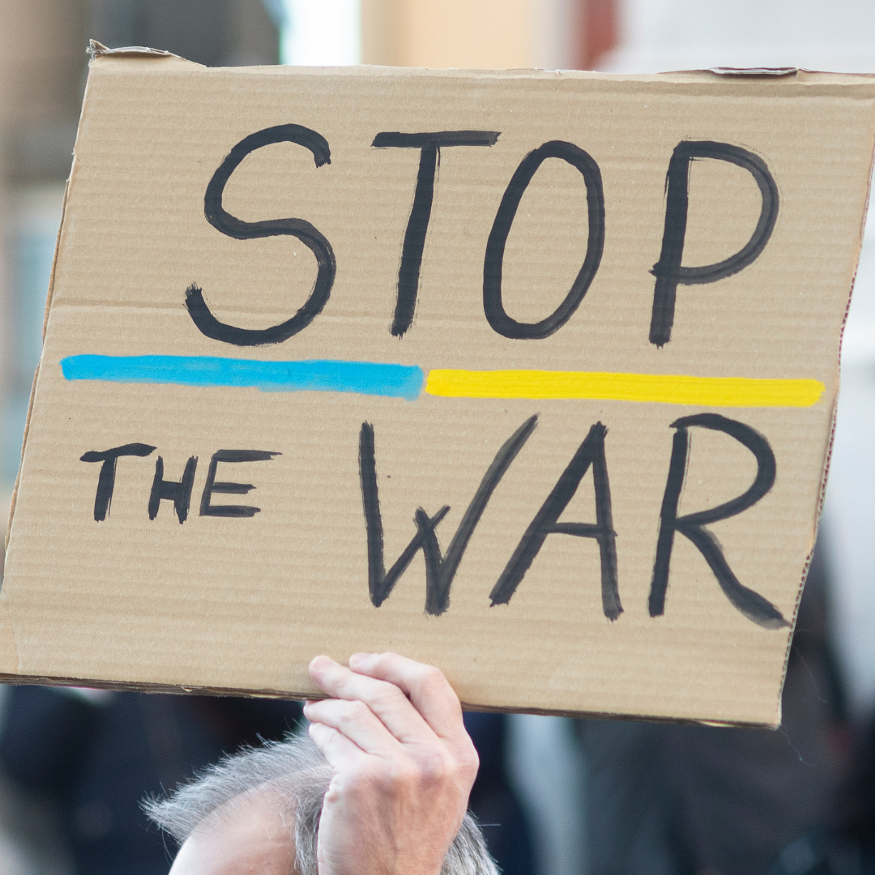
Here’s our latest update on what’s happening for LGBTI people either staying in or fleeing Ukraine, the ways we’re working to help, and how you can urgently help too.
Shelters for LGBTI people in Ukraine running out of necessities
Since the start of the war, many shelters that have been established by local activists in different parts of Ukraine for LGBTI people who have chosen to stay for personal reasons or are unable to leave. Two months after the Russian invasion began, people are becoming overstretched as those running these shelters have to find ways to pay rent, have money to buy food, basic necessities and medication. At ILGA-Europe, we are channelling financial support to as many organisations as we can, and coordinating with the many other LGBTI organisations and partners who are directly supporting groups in the country. But more is urgently needed. To find out how you can directly support Ukrainian organisations giving support to LGBTI people in the country, click here.
Medication continues to be a major issue for LGBTI people
Trans and intersex people in Ukraine continue to experience difficulties accessing the medications they urgently need, as are people living with HIV. At ILGA-Europe we are working closely with other partner organisations to help move desperately needed medications across borders. The fact that LGBTI organisations have to organise medical shipment is highlighting a very big gap in current humanitarian work. That’s why we’re also advocating with UN agencies and other humanitarian actors for them to ensure provision of specific medications which LGBTI people need. Here is our current briefing document on the medication needs of trans and intersex people.
Trans people continue to experience extreme difficulties
Particular attention continues to be paid to the situation of trans people who are in Ukraine. ILGA-Europe is working with TGEU and many others to find ways for trans women to be exempted from military services and be granted the necessary documents to be able to leave the country when they wish to. While we collectively succeeded in bringing the issue to the attention of institutions, international organisations and governments, concerns for the safety of trans people in Ukraine remain, and this continues to be a key advocacy priority. To read our blog on how the war is affecting trans people, click here.
There’s a gap in knowledge about what’s happening for LGBTI people in occupied areas
As the war goes on, we know that the issues faced by people only grow and sadly become more serious. One growing concern shared by ILGA-Europe and our colleagues in other LGBTI organisations is the fact that there are gaps in our knowledge about what is happening in Russian occupied areas of Ukraine. This is something we’re turning our attention to.
Humanitarian actors need to be LGBTI inclusive
The war in Ukraine is reminding us of the significant work to be done to make sure that humanitarian aid becomes LGBTI inclusive. From access to medication and safe shelters in conflict zones to support for LGBTI refugees, there’s a need for the humanitarian sector to take into consideration specific vulnerabilities of LGBTI people. This work cannot rest only on LGBTI activists and communities as is the case at the moment. That’s why building bridges with humanitarian organisations and identifying ways to effectively work with them is a new focus for the ILGA-Europe team. To find out some easy ways for humanitarian agencies not to leave LGBTI people click here. Please share this document on your social media!
More LGBTI organisations in host countries are becoming engaged
As we saw during the COVID-19 crisis, more and more LGBTI organisations, many of them members of ILGA-Europe, have put other work aside to become involved in humanitarian aid for LGBTI refugees crossing their borders, setting themselves up as first points of contact. This shows the incredible resourcefulness and creativity of LGBTI activists and organisations, but the reason why they’re stepping up is because there are huge gaps in governmental support. We are compiling an ongoing list of these organisations, which can be found here. Please share this list on your social media.
Limits of the EU Directive are being identified
Under the Temporary Protection Directive, on 4 March 2022, the European Council unanimously adopted a decision to give those fleeing war in Ukraine the right to temporary protection in EU countries. As organisations reach out to help LGBTI people who have fled Ukraine, some limitations of the EU Temporary Protection Directive are being identified, such as:
- People with non-Ukrainian passports are experiencing difficulties at some borders.
- Bi-national LGBTI couples are being separated because only one of them carries a Ukrainian passport.
- There are delays in access to urgent medication for trans people in some countries where medical bureaucracy for trans people is difficult to navigate.
- In some countries, where housing already a national issue, the accommodation of refugees from Ukraine is a rising issue.
Learn more by reading our briefing note on temporary protection and LGBTI people in EU member states.
Requests for psycho-social support are rapidly increasing
At ILGA-Europe we are receiving support requests from Ukrainian activists and activists who have been supporting refugees, who are finding themselves burnt out and their mental health suffering, two months into this war. We are currently looking into ways in which we can deliver this support.
Briefing Note: Ukraine war: Temporary protection and LGBTI people in EU member states
Briefing Document: Ukraine war – Medications needed by trans and intersex people

The ongoing crisis in Ukraine has resulted in need for immediate action to address the needs both of a significant population of Ukrainians fleeing the fighting as well as for those who are staying in Ukraine. Within both of these populations, trans and intersex people can be found, and their unique healthcare needs must be taken into account in the humanitarian responses. The purpose of this briefing is to describe the medical needs most common among trans and intersex people, including the medications that they will need, and to document emerging issues in Ukraine and surrounding countries on these issues.